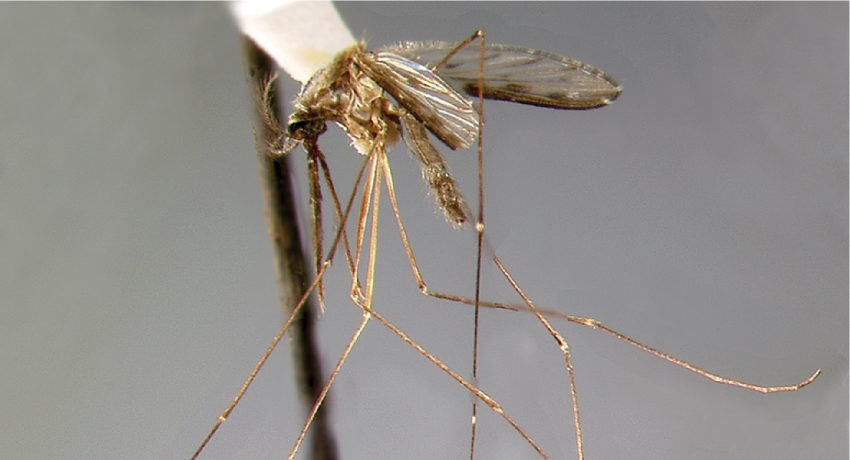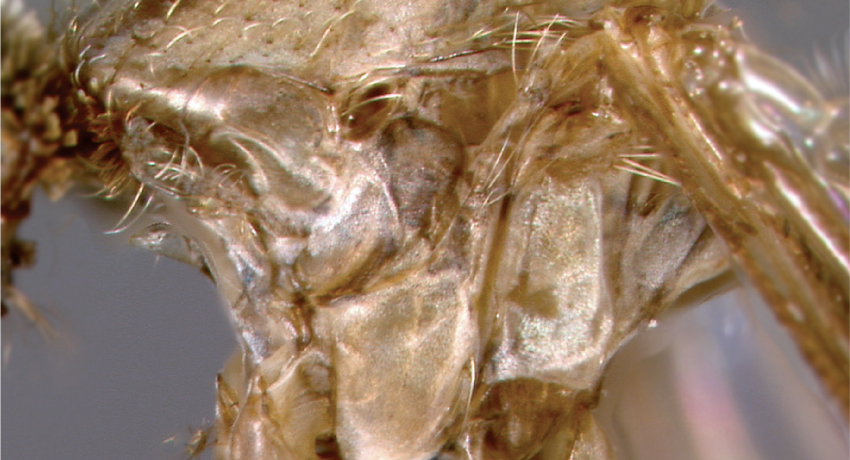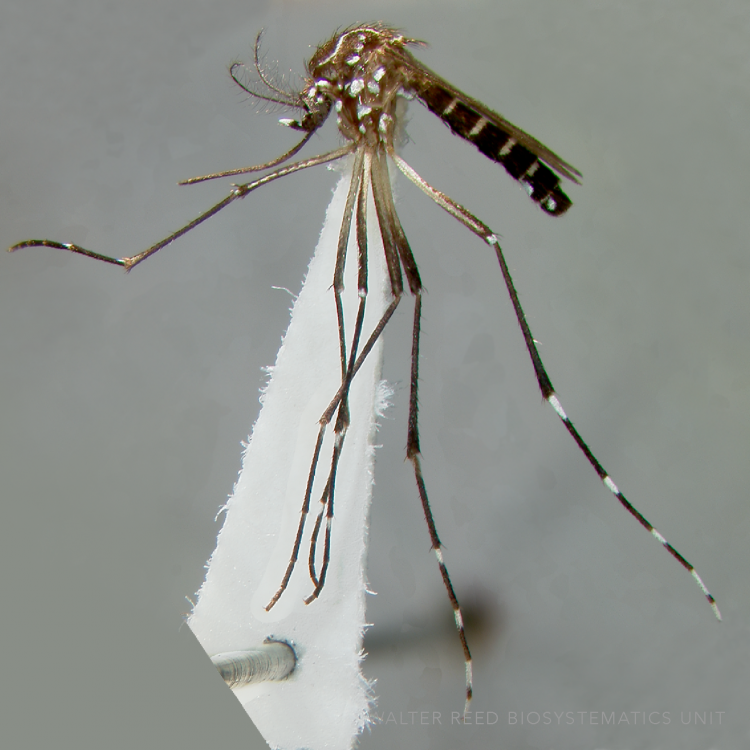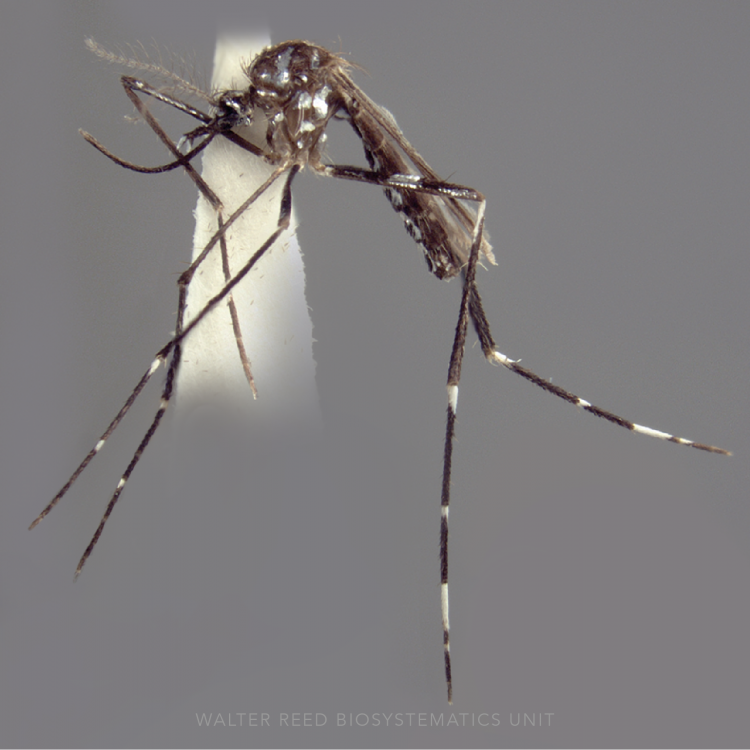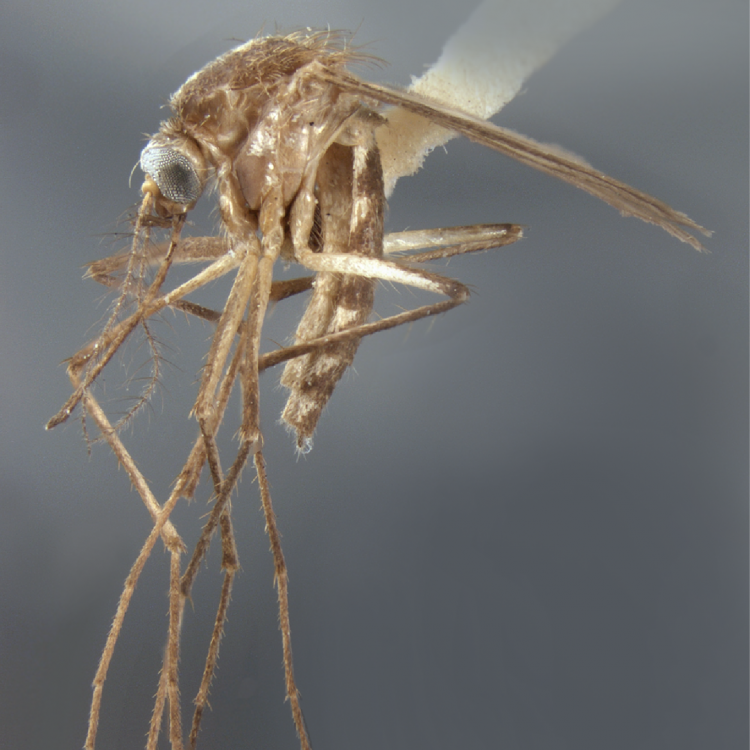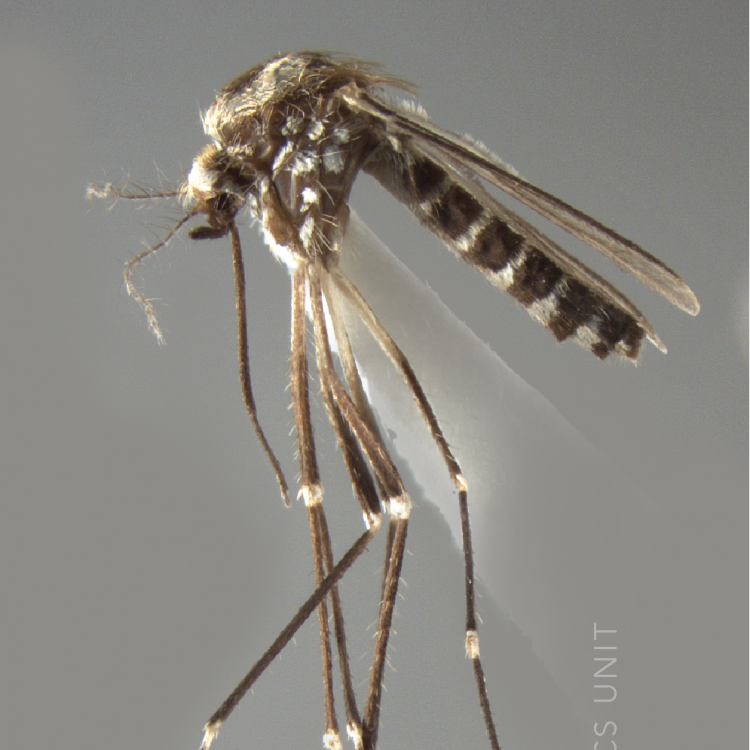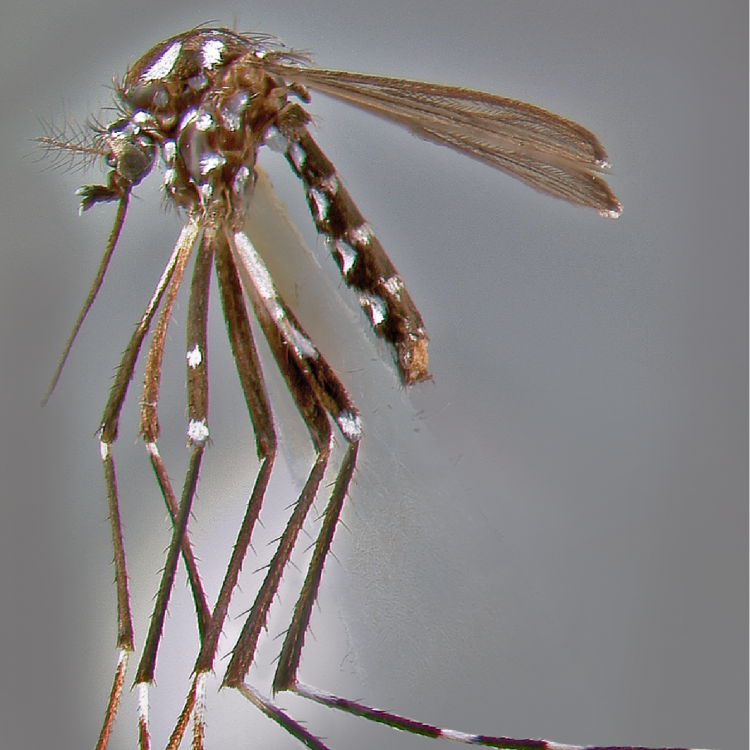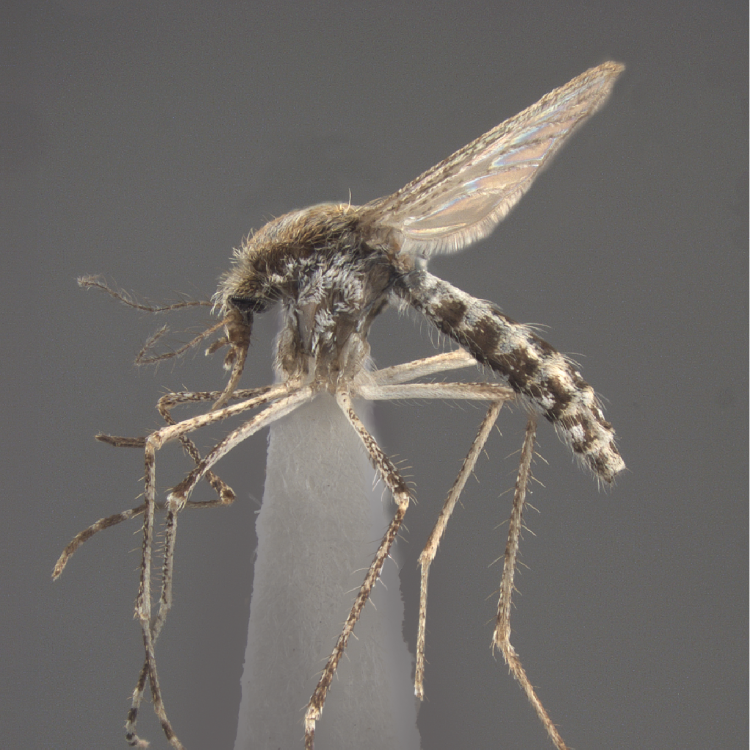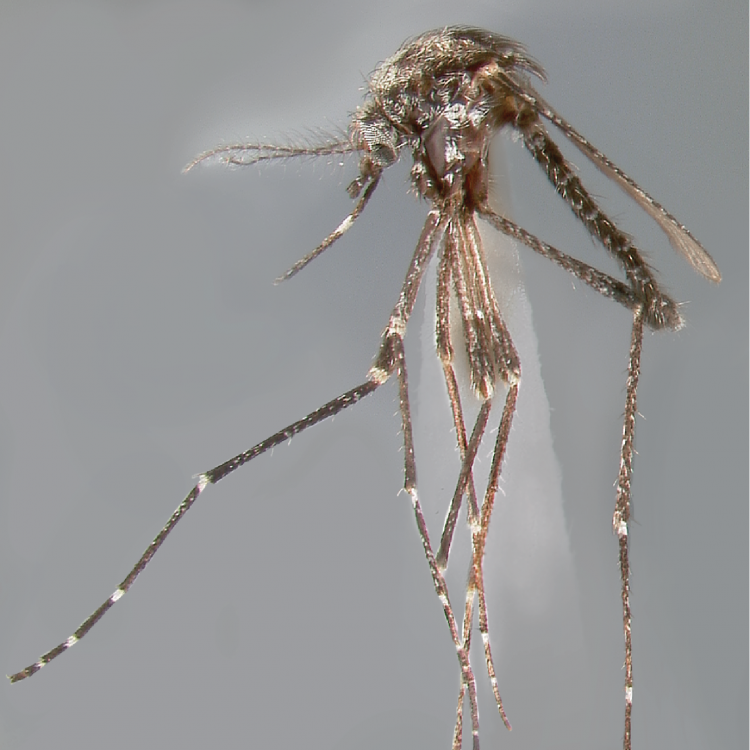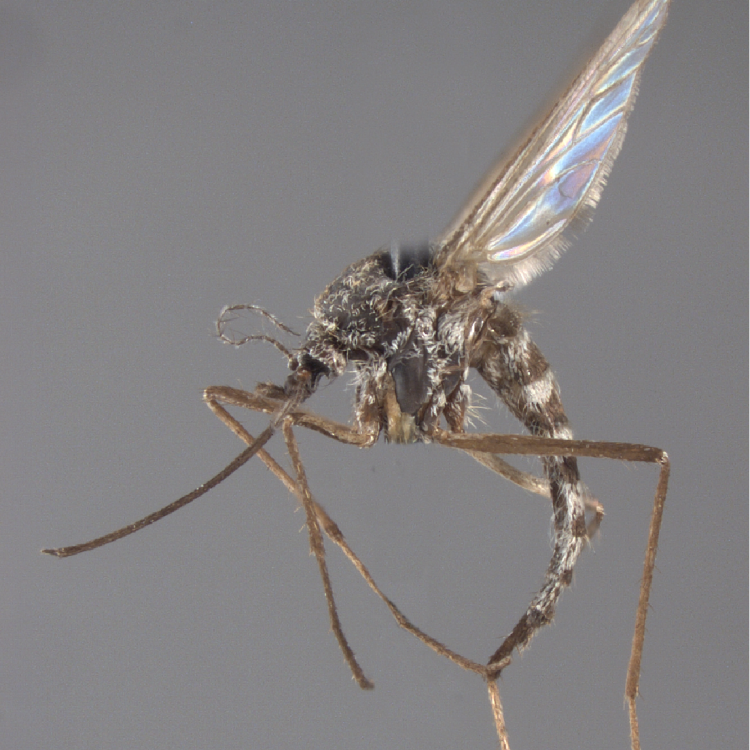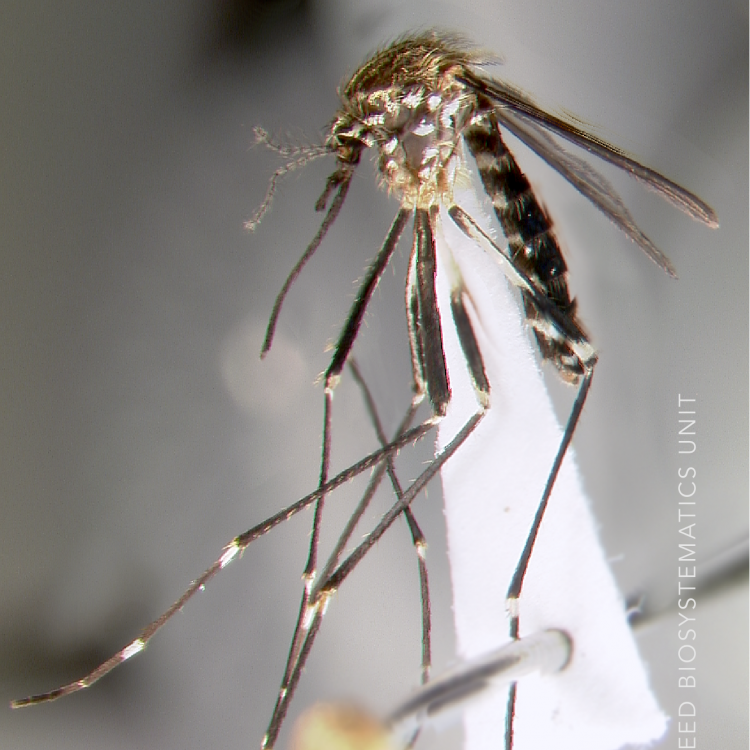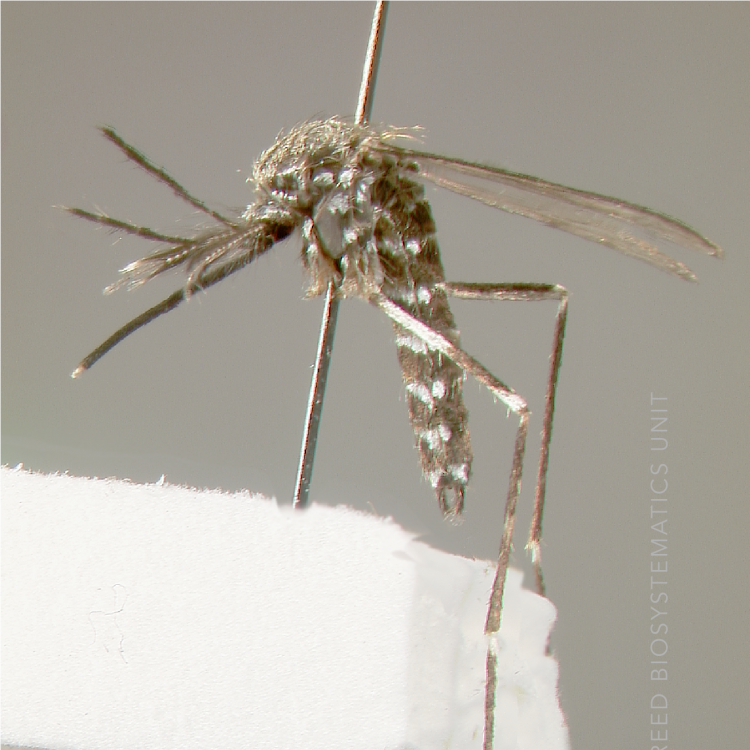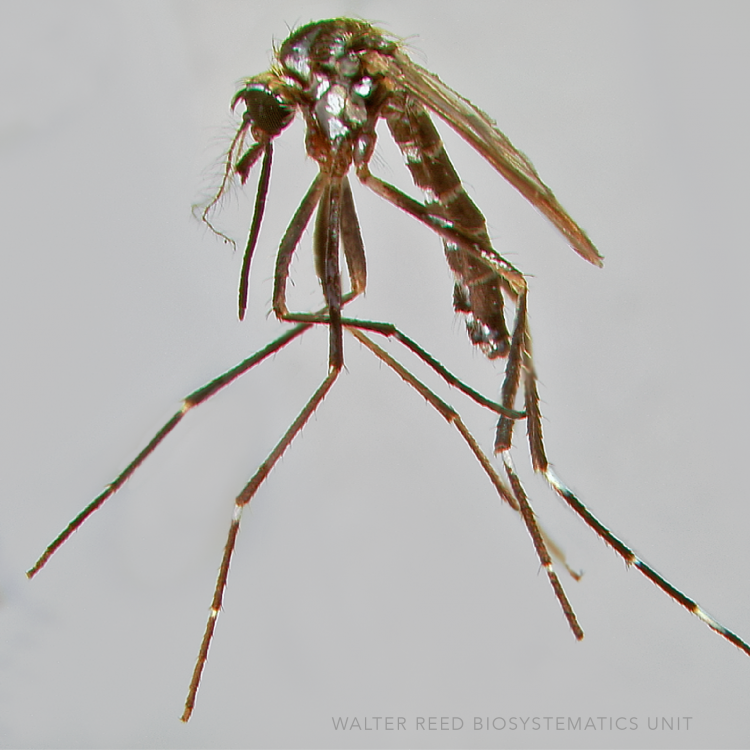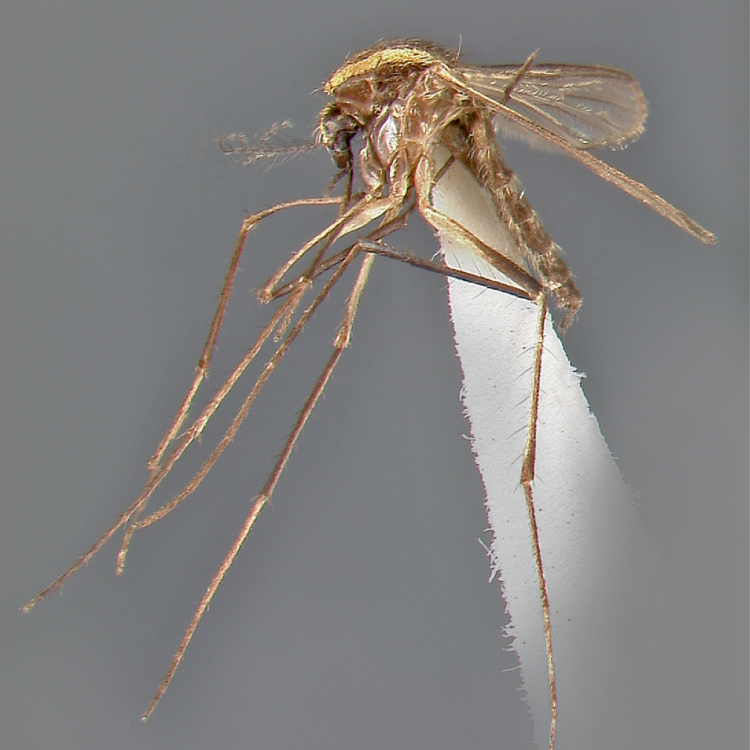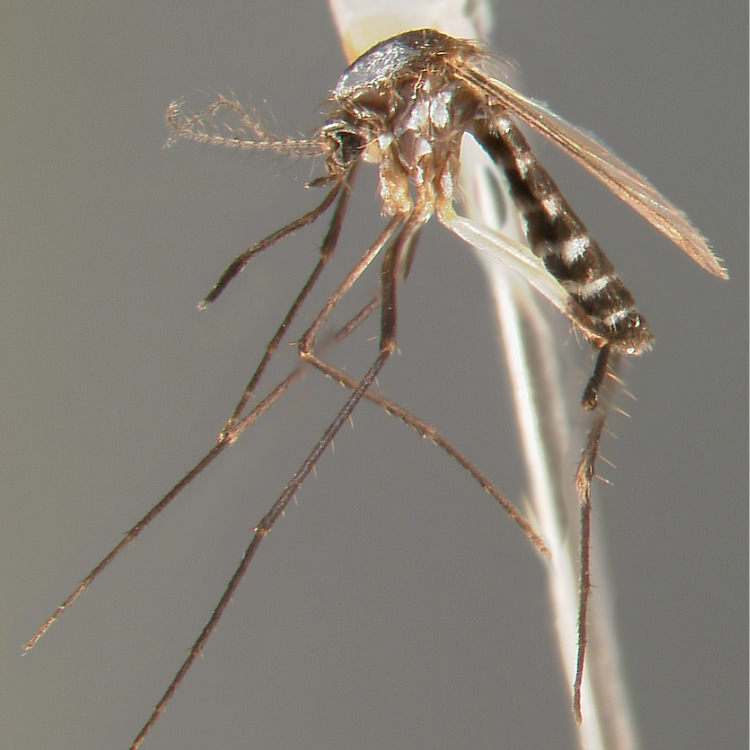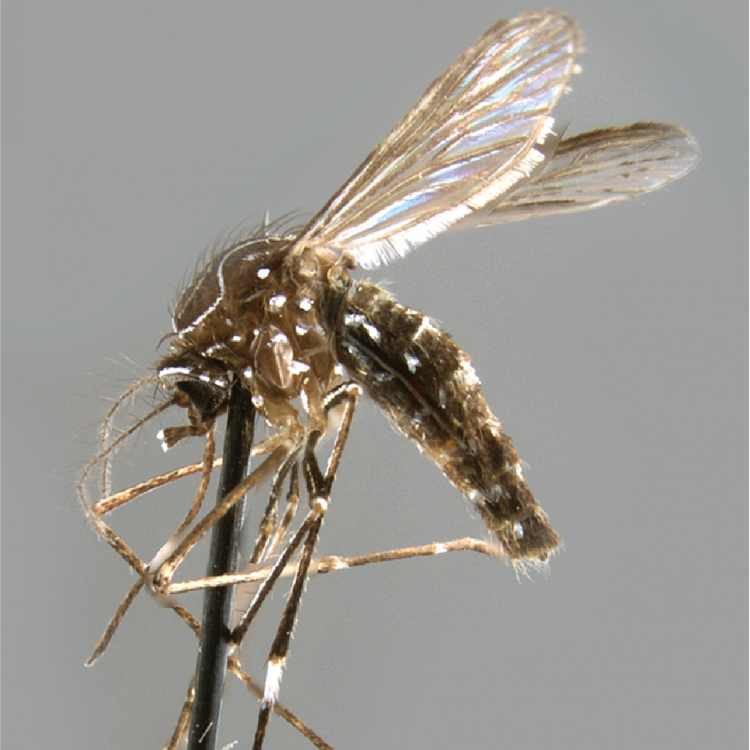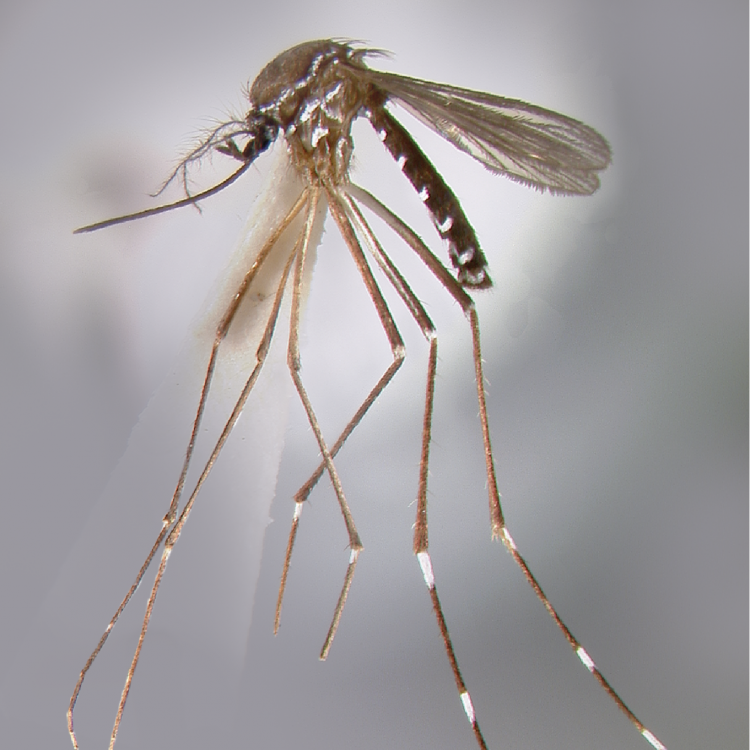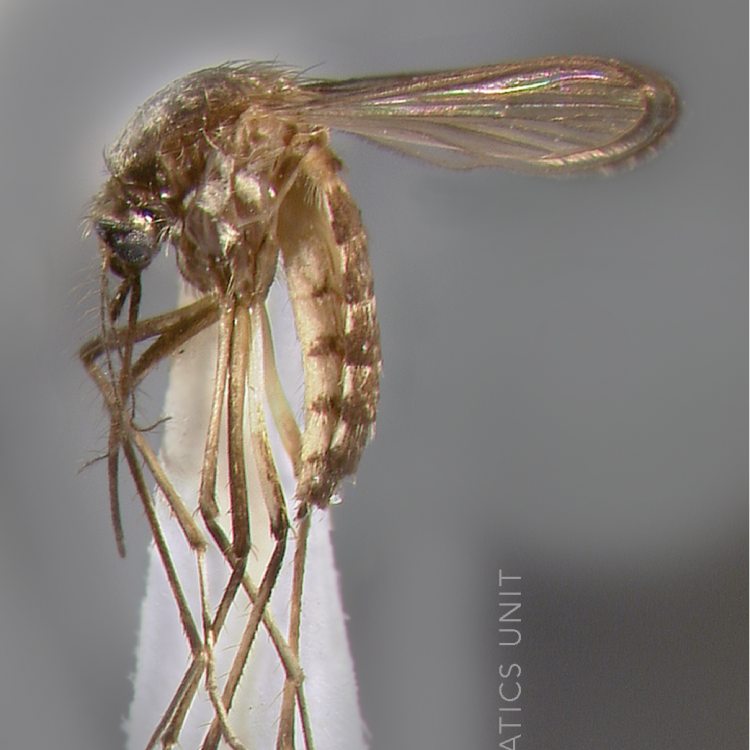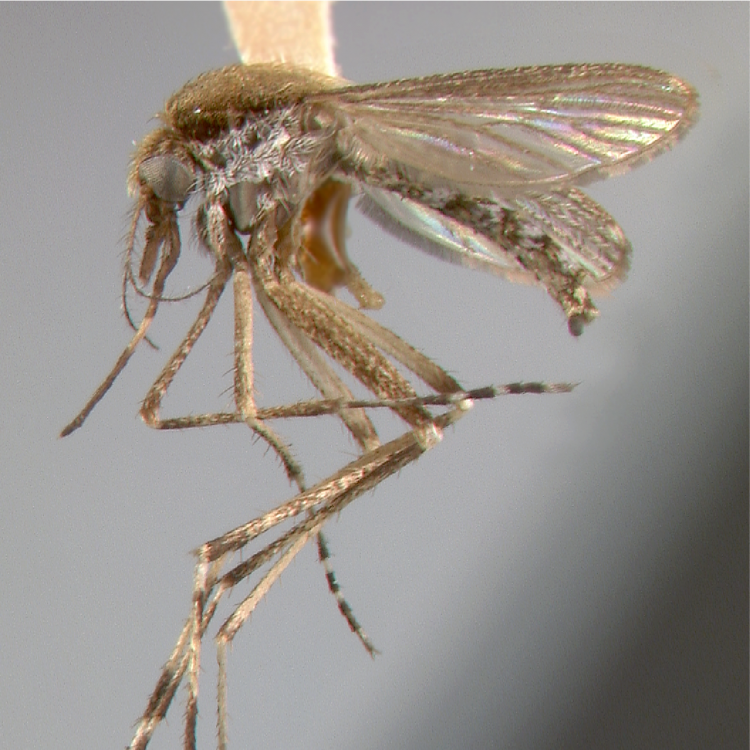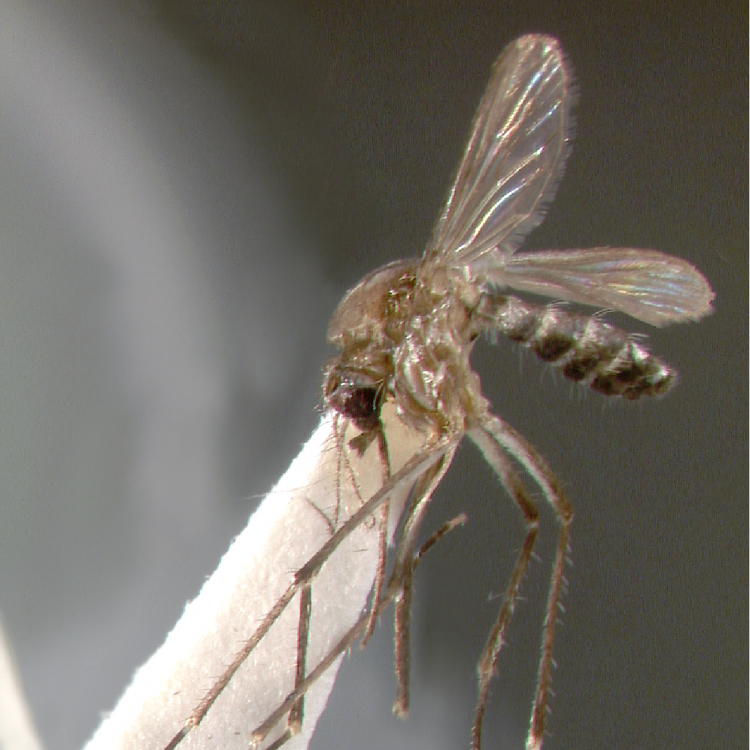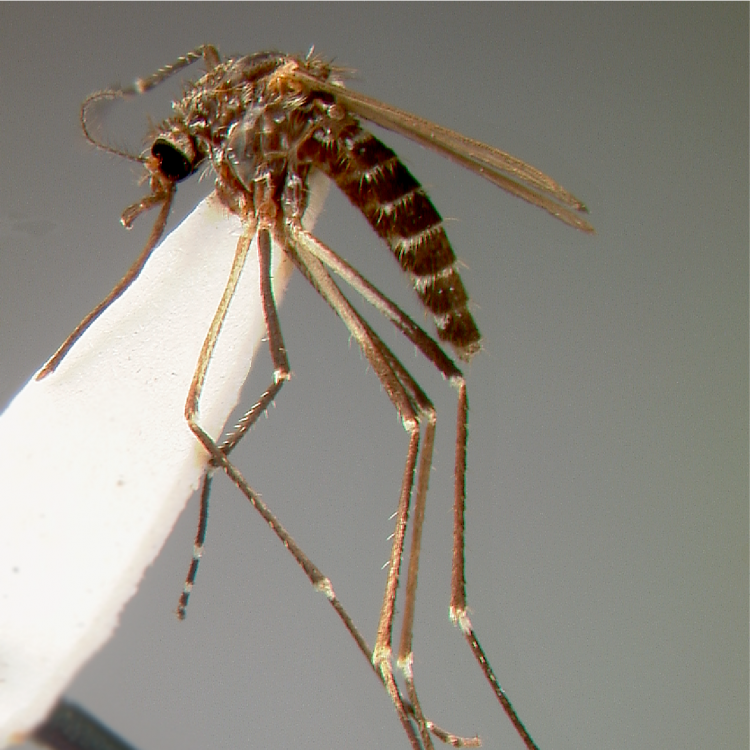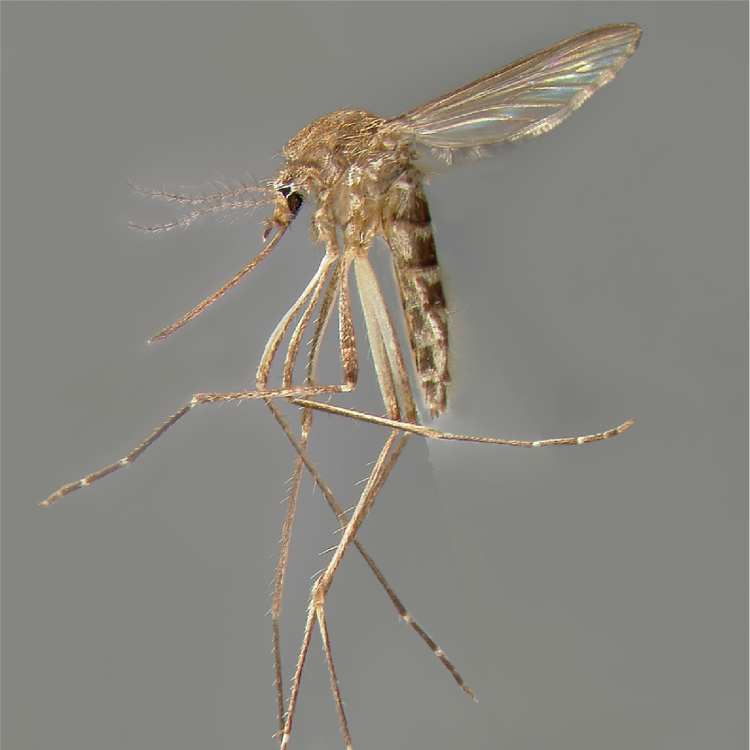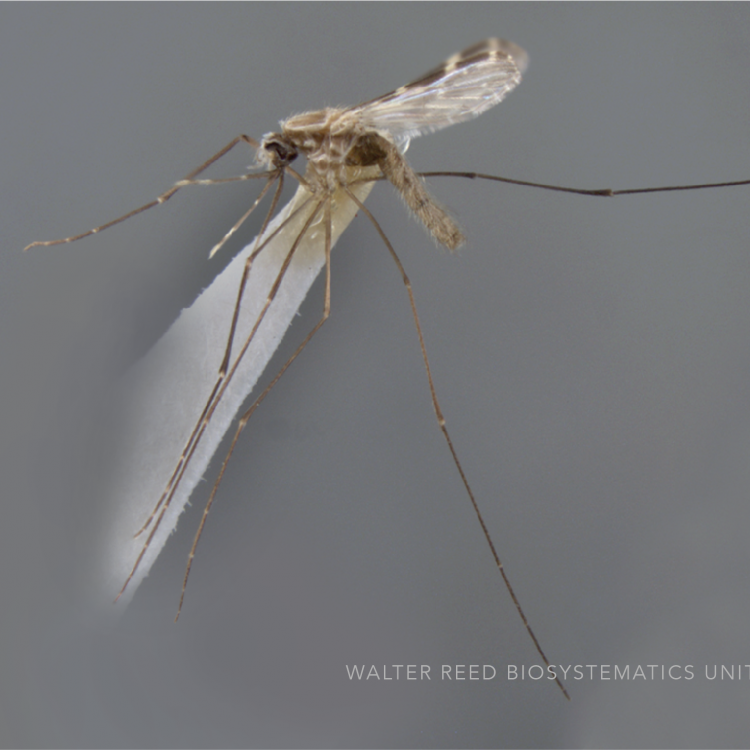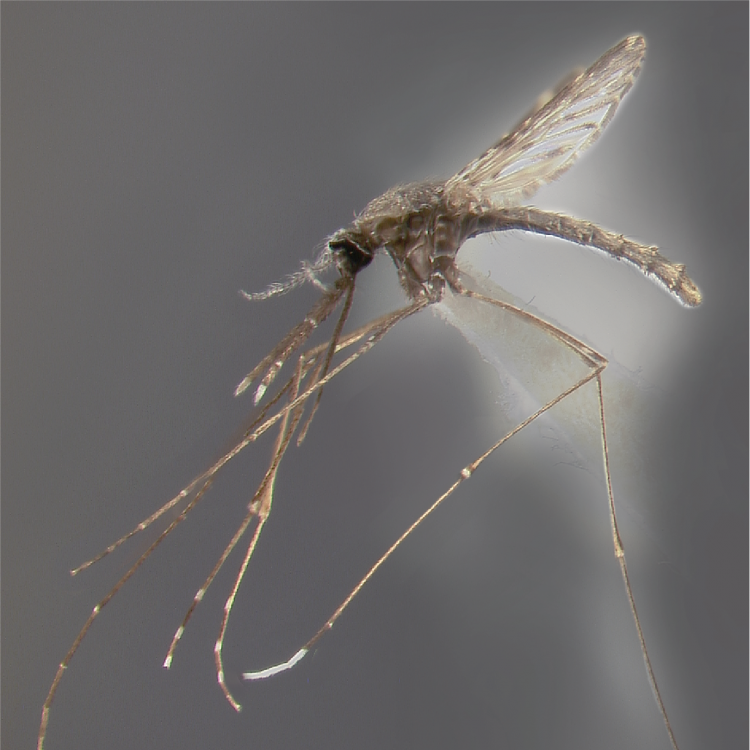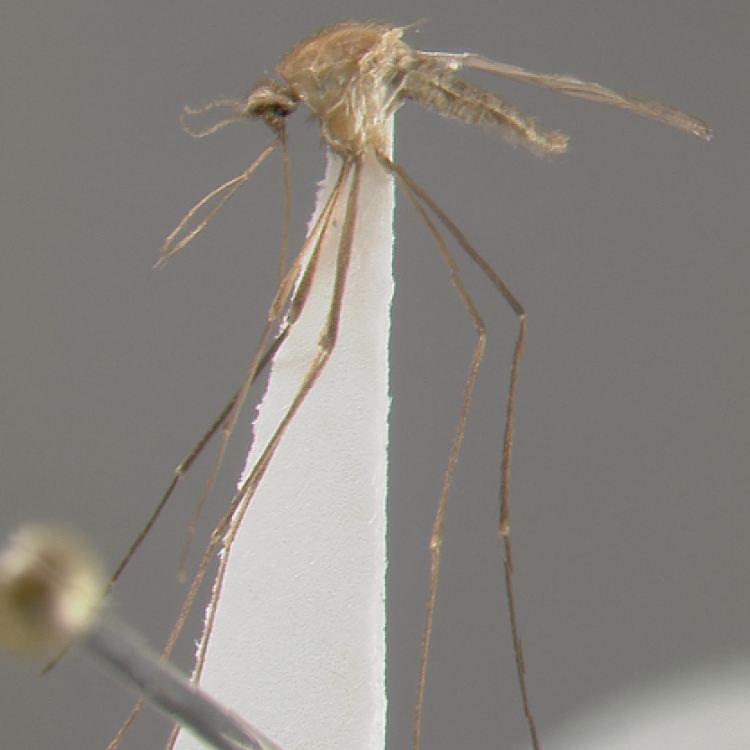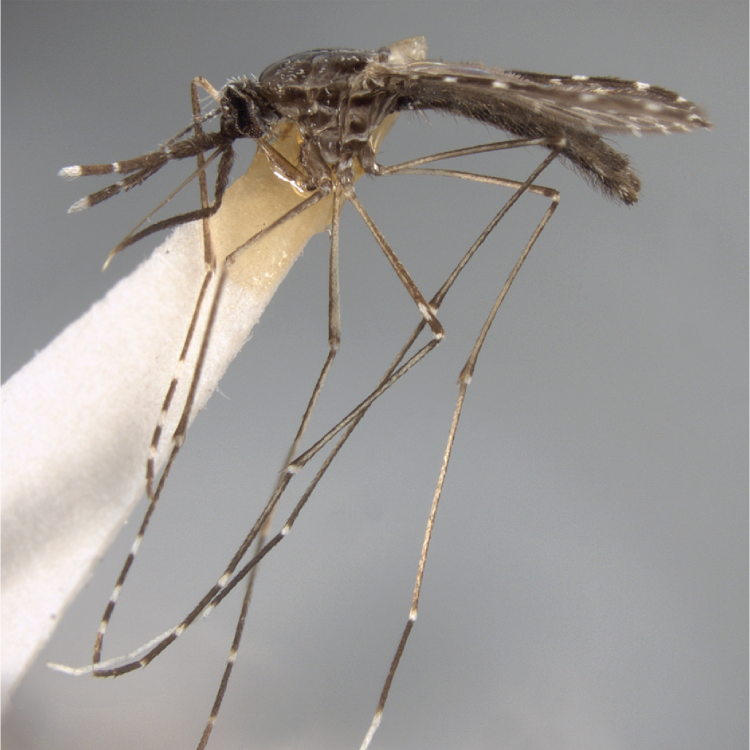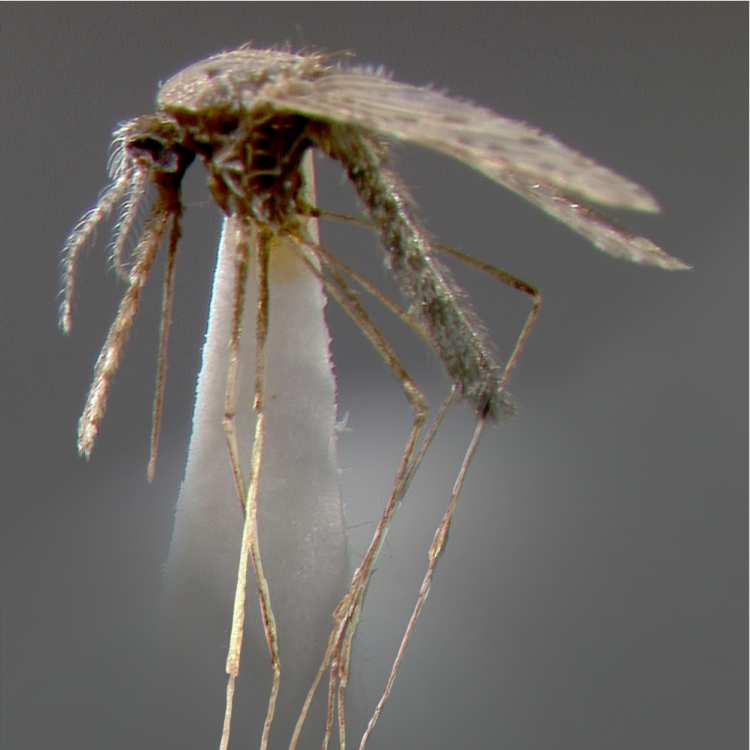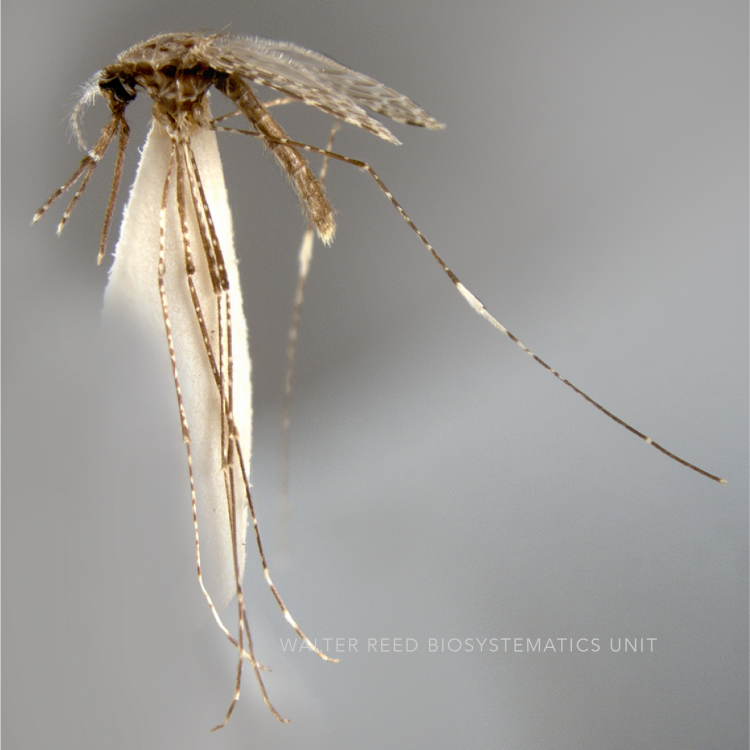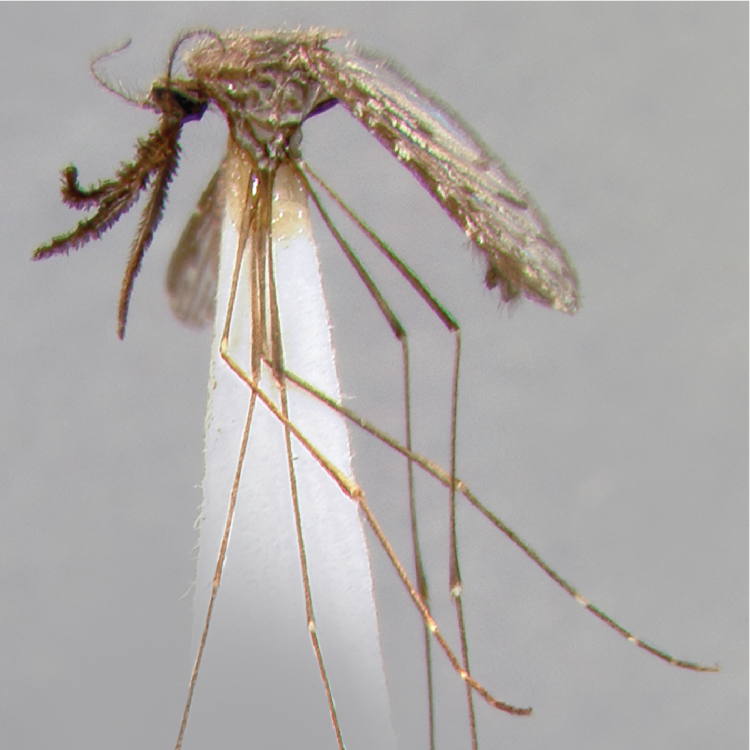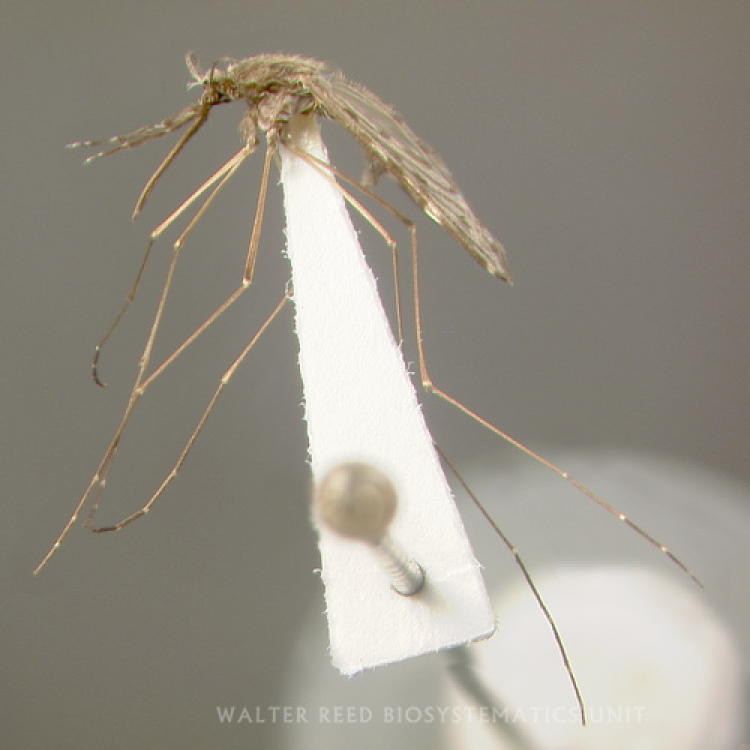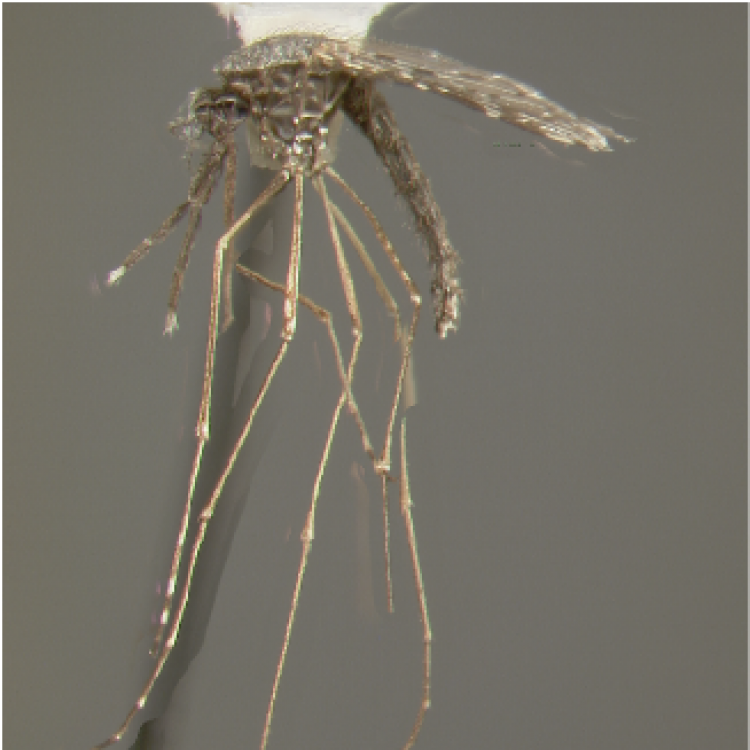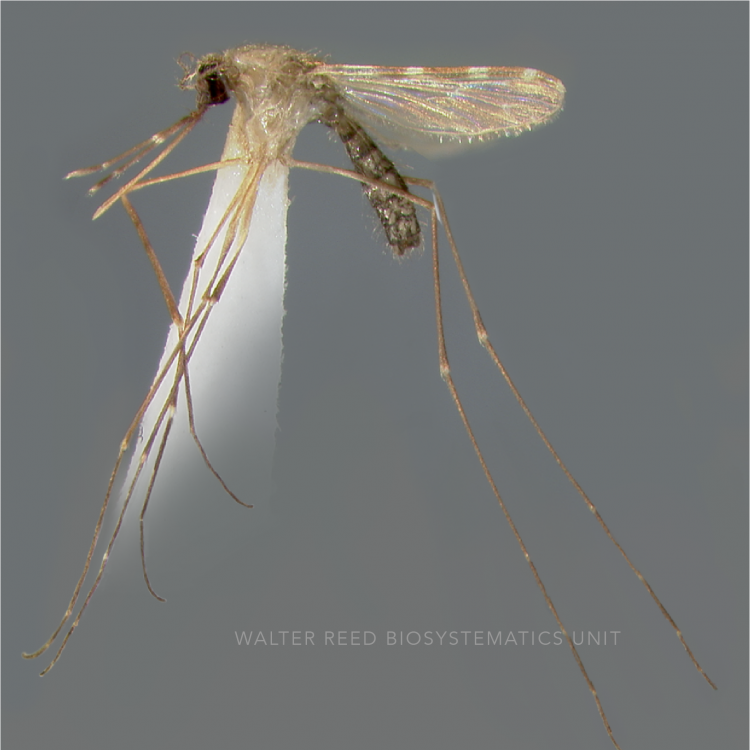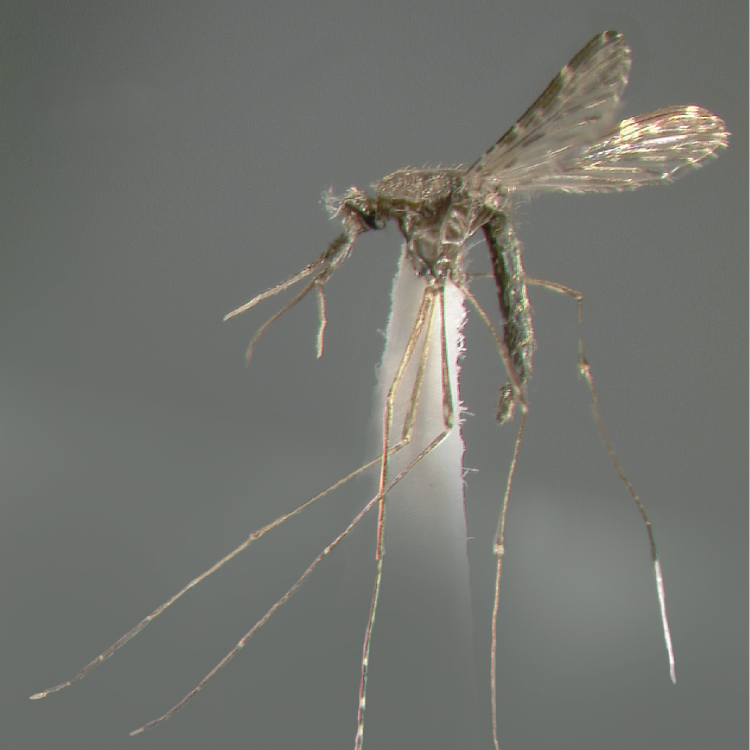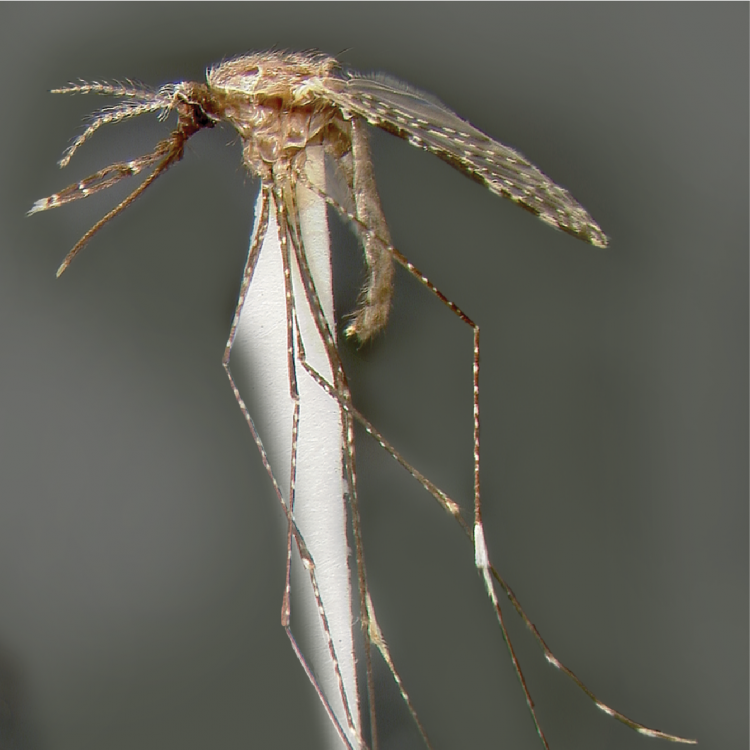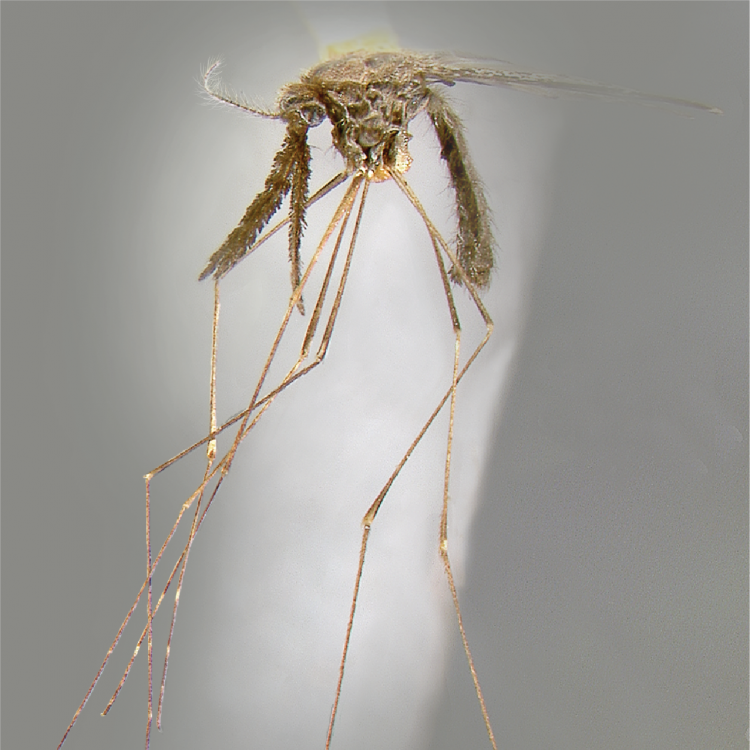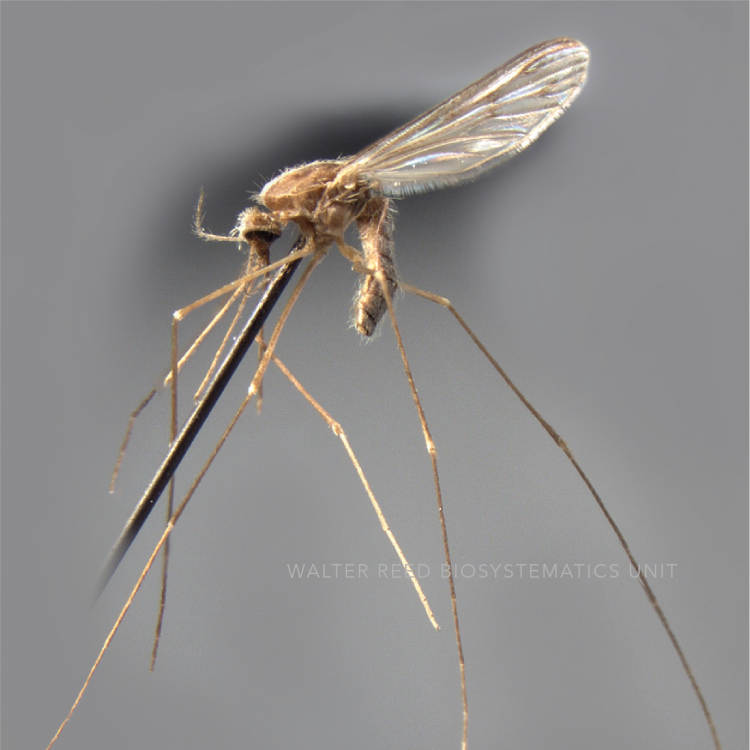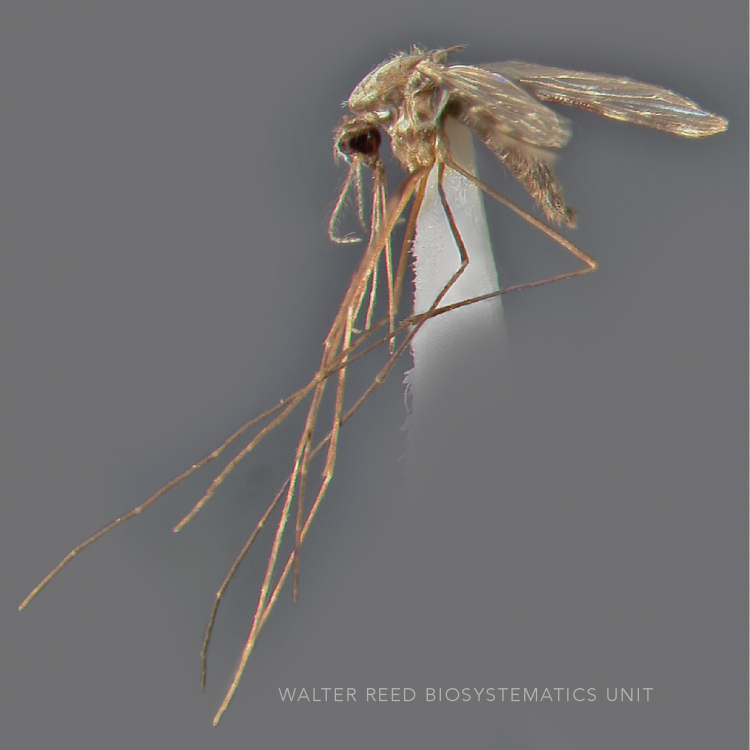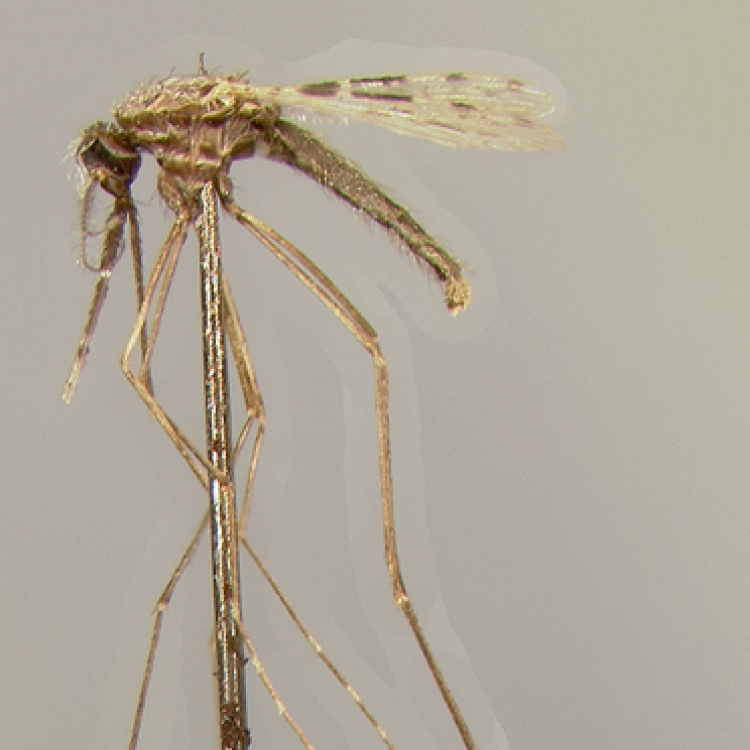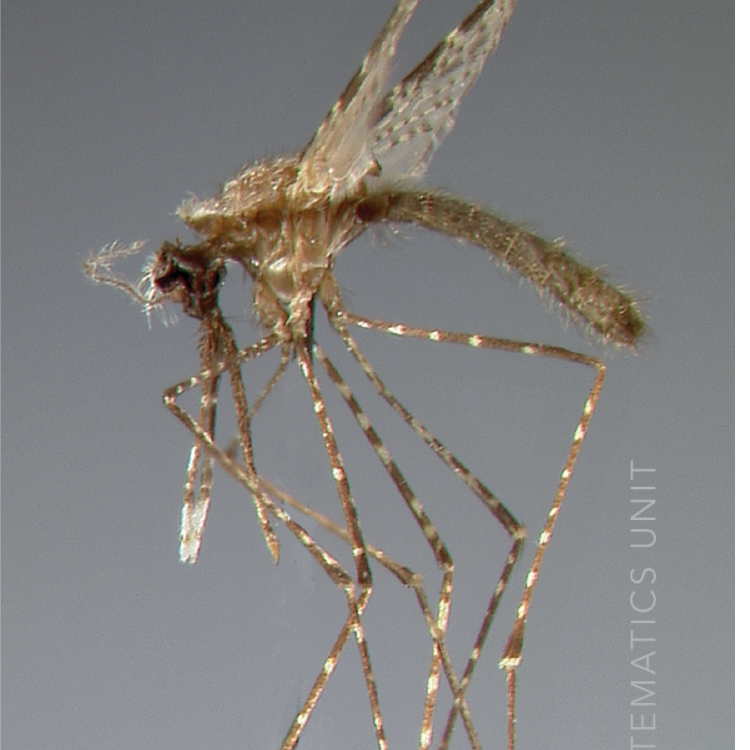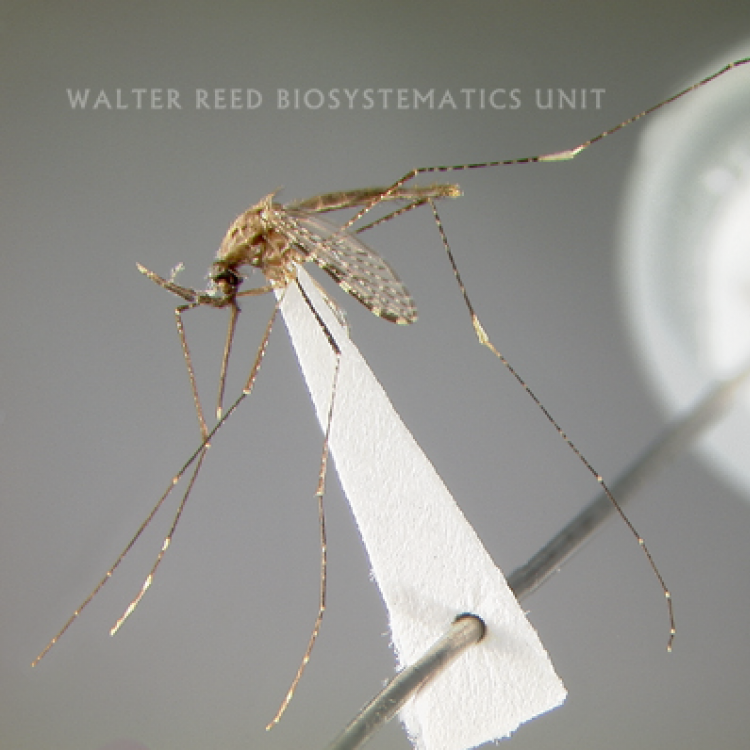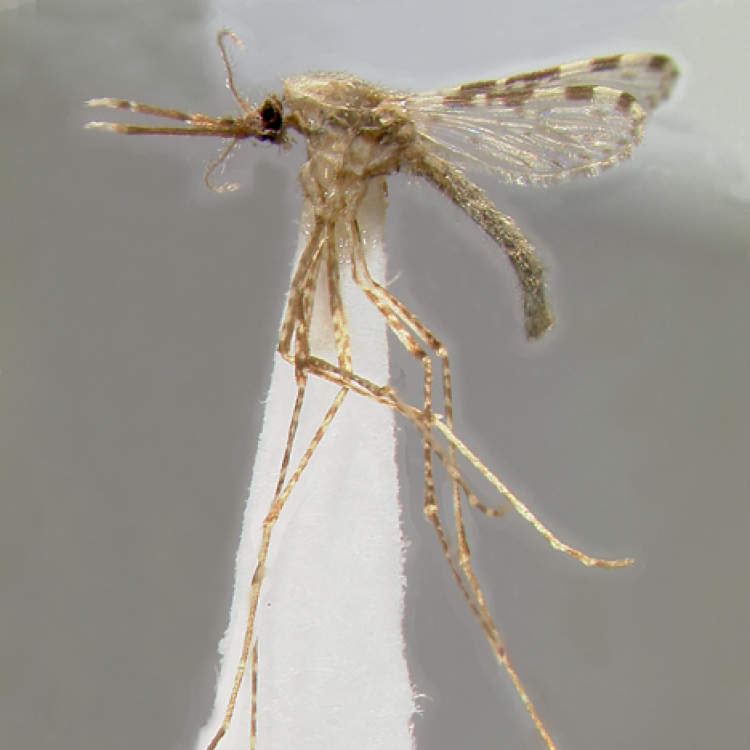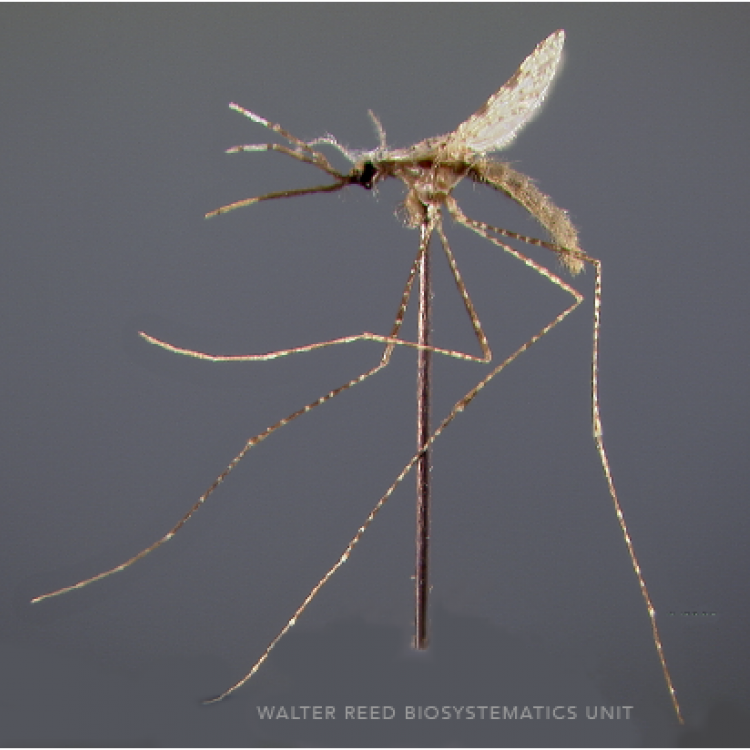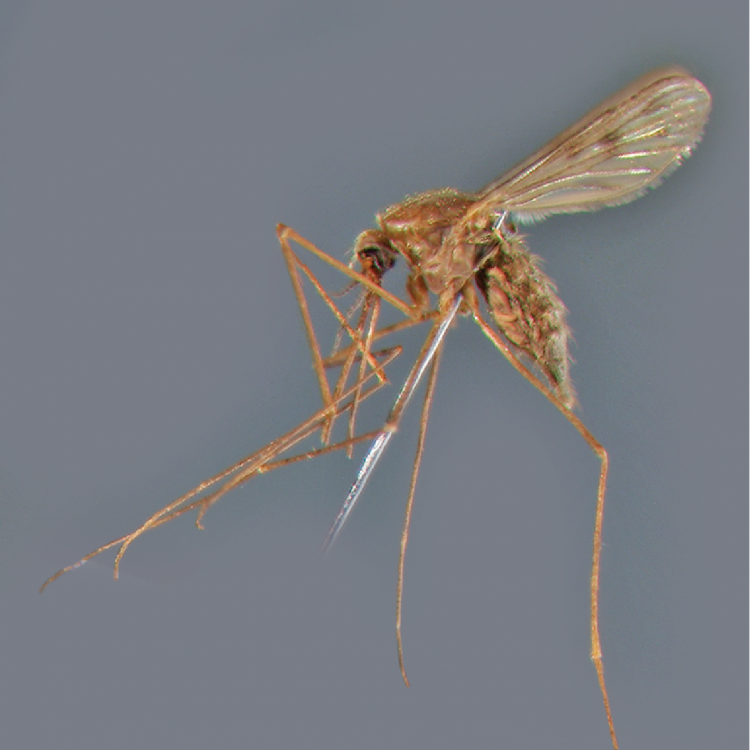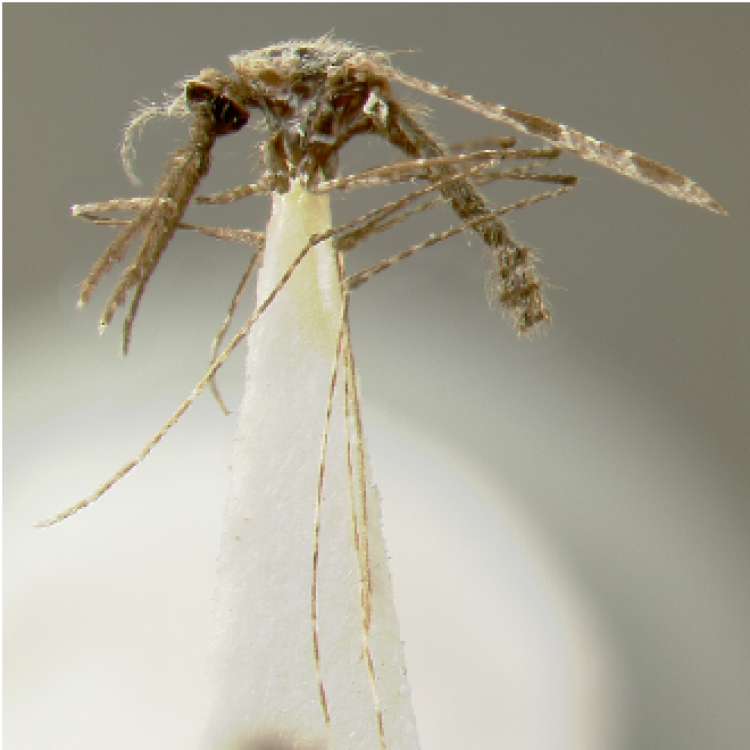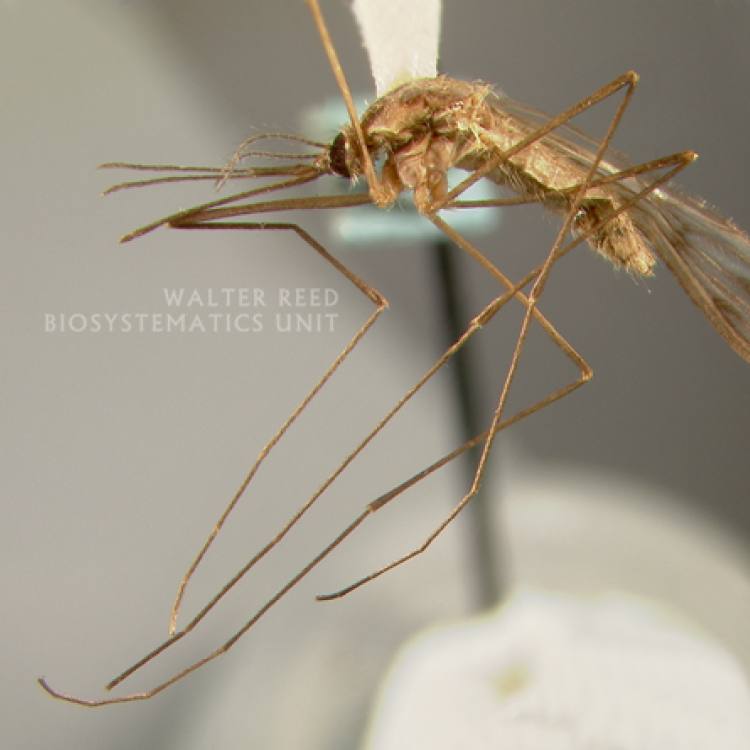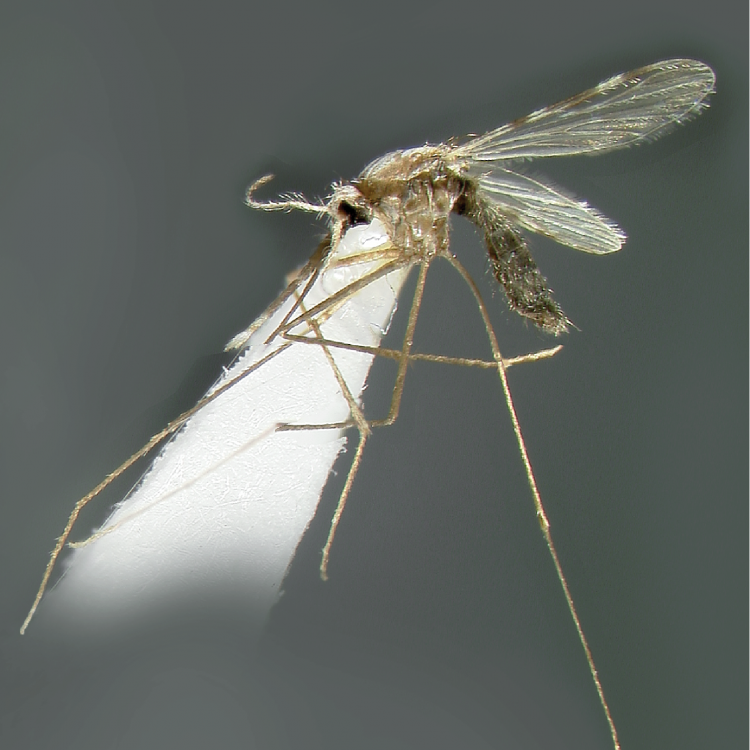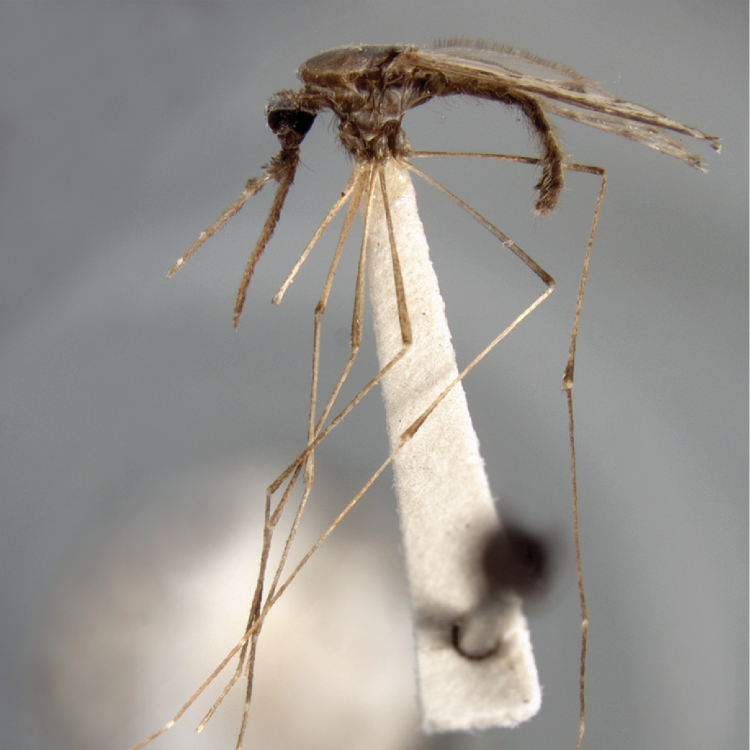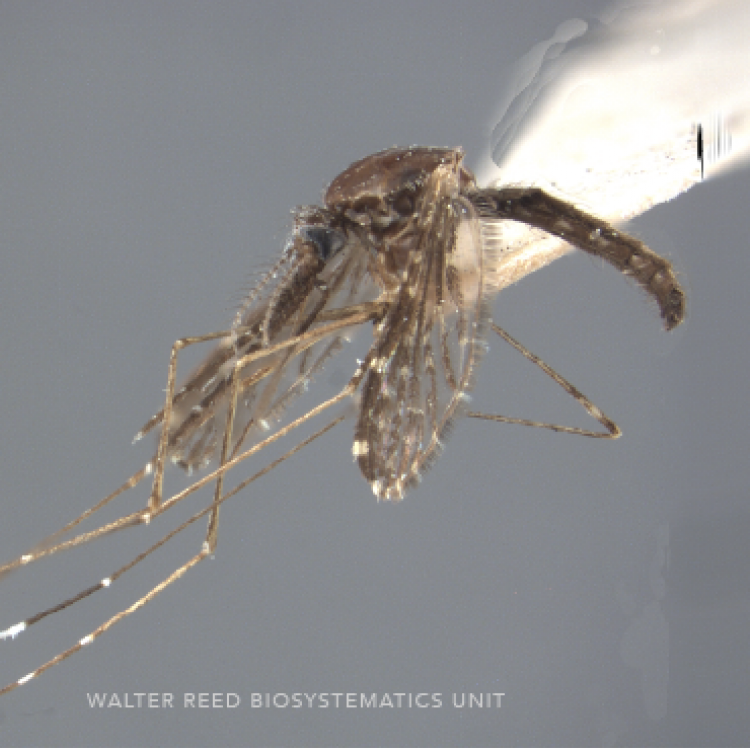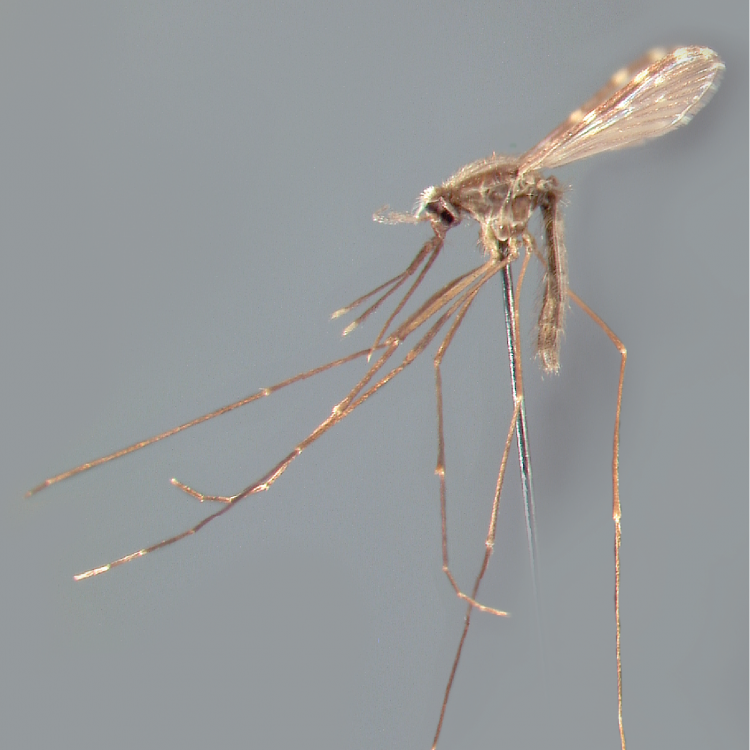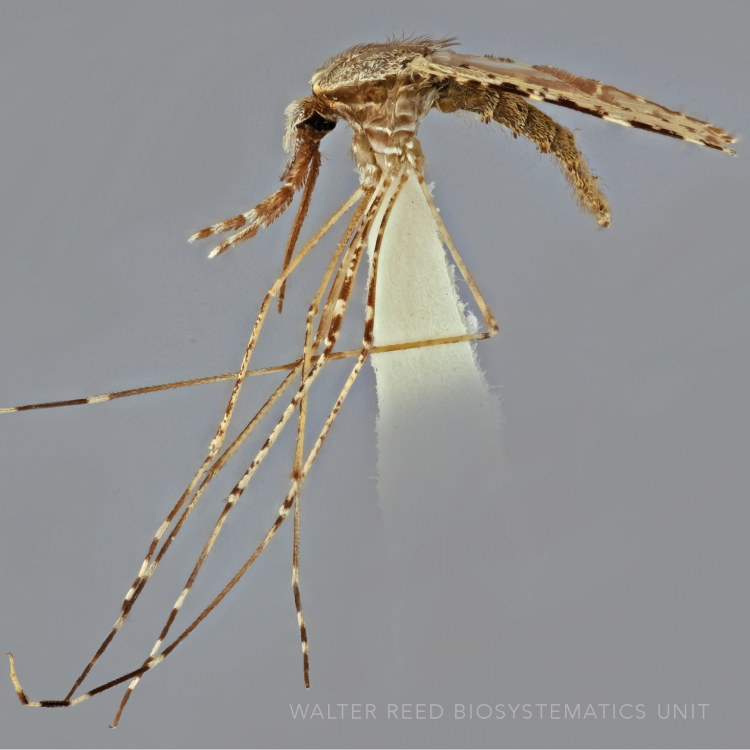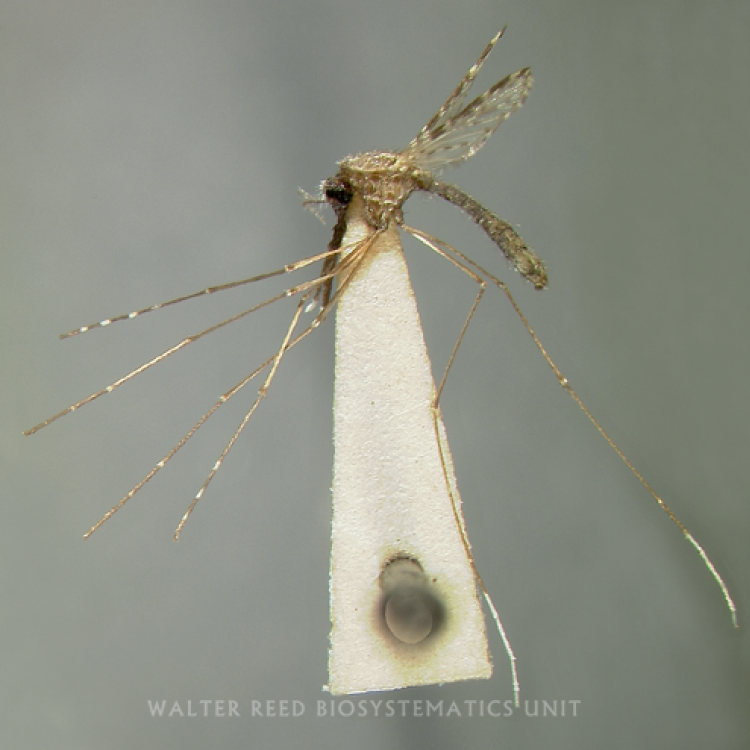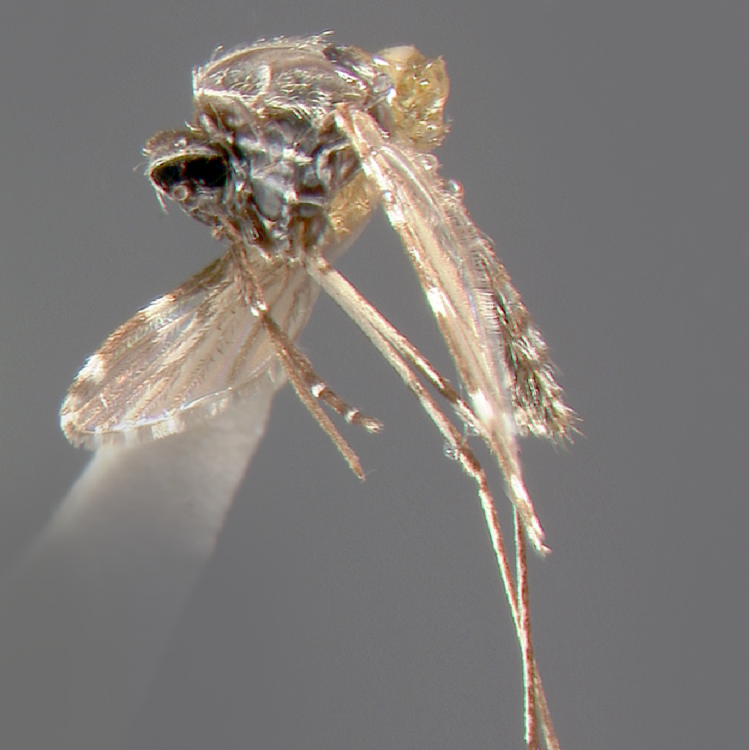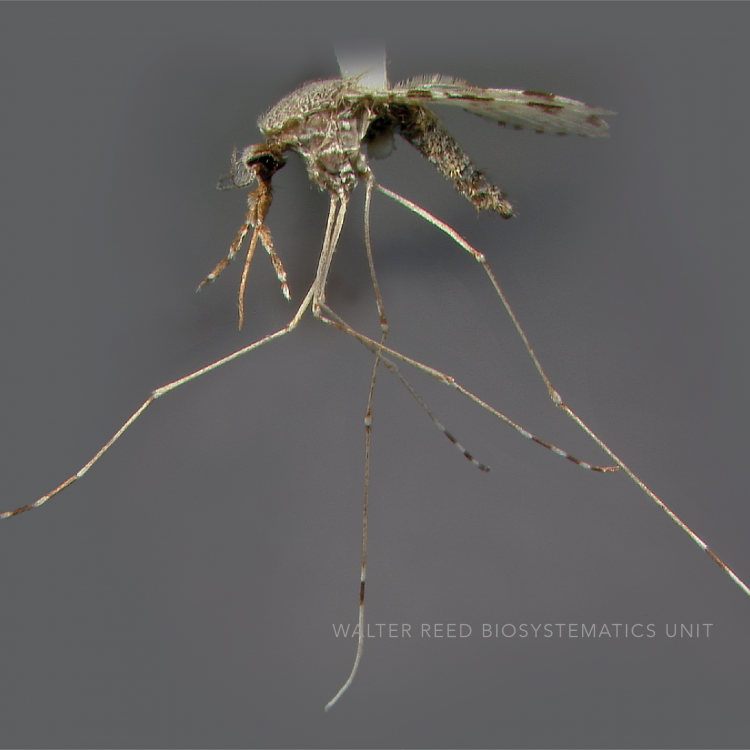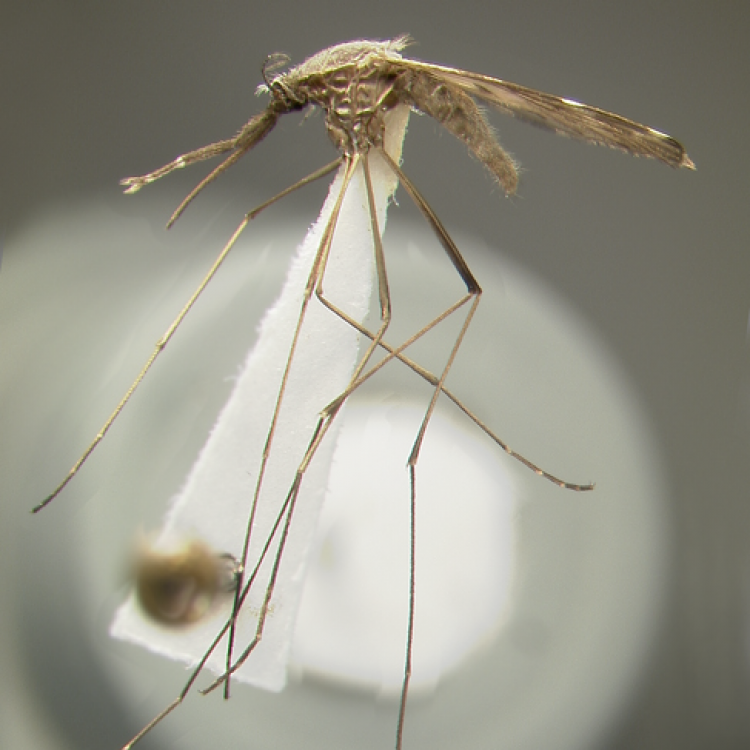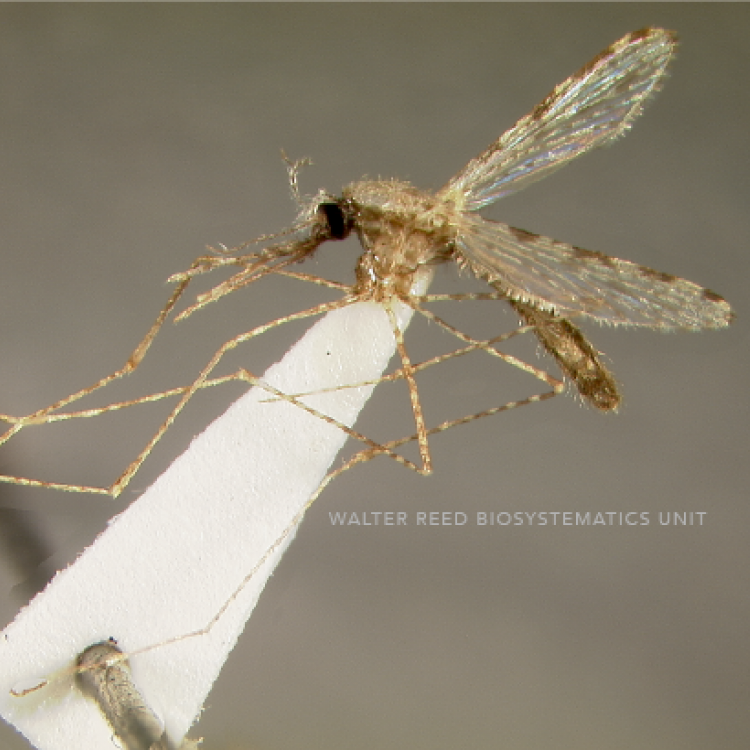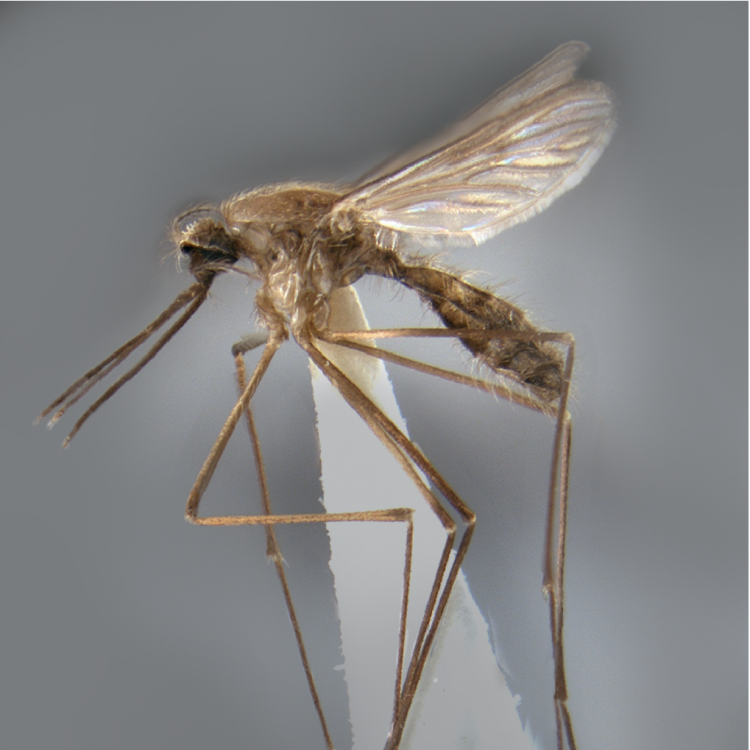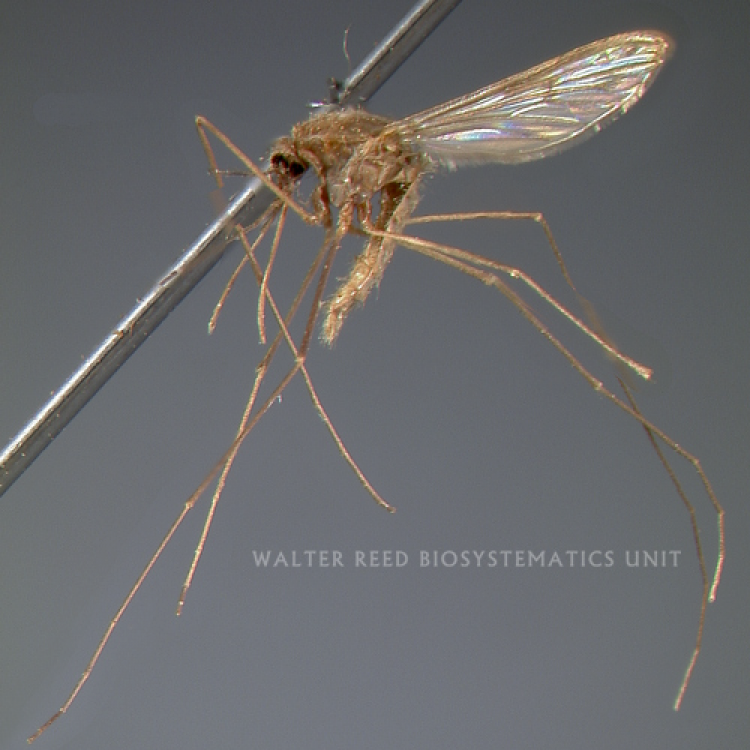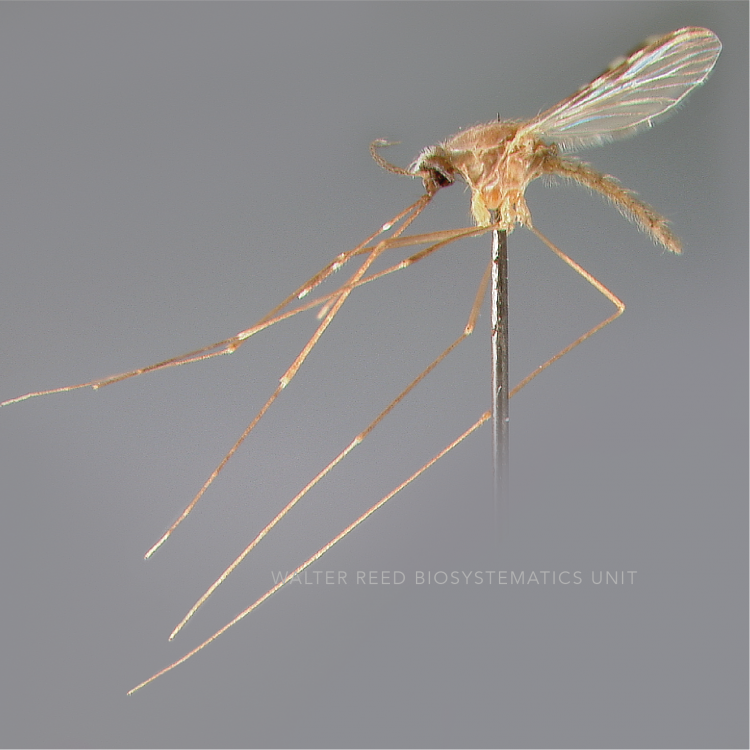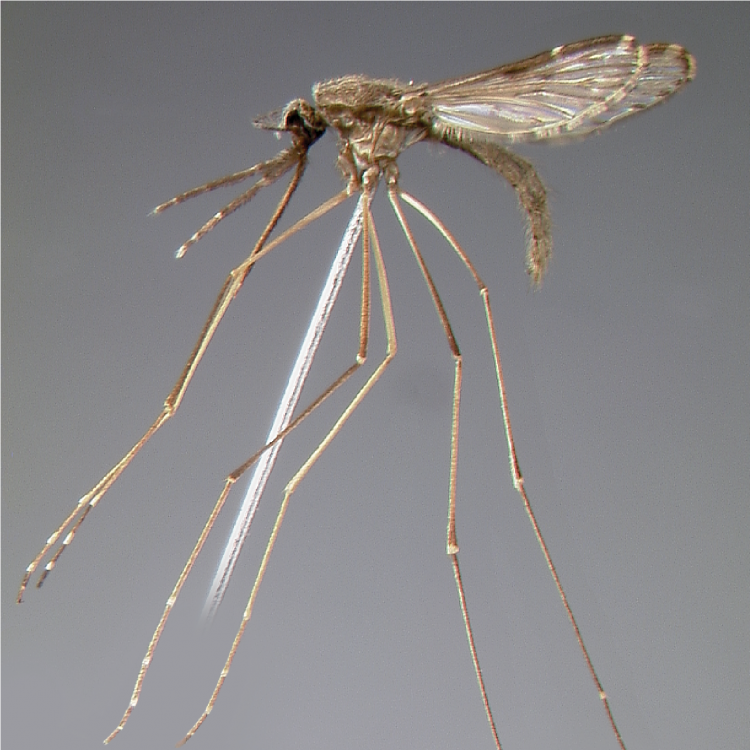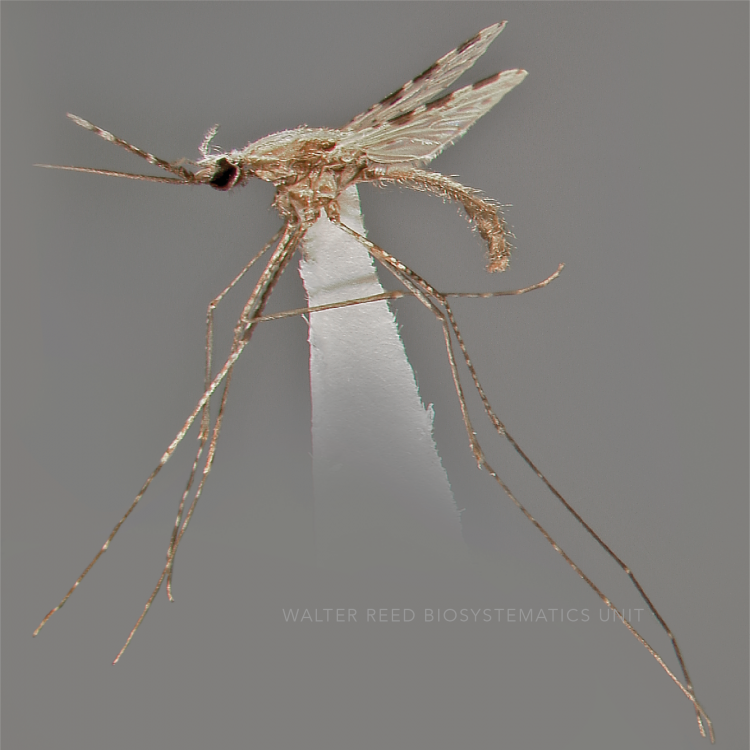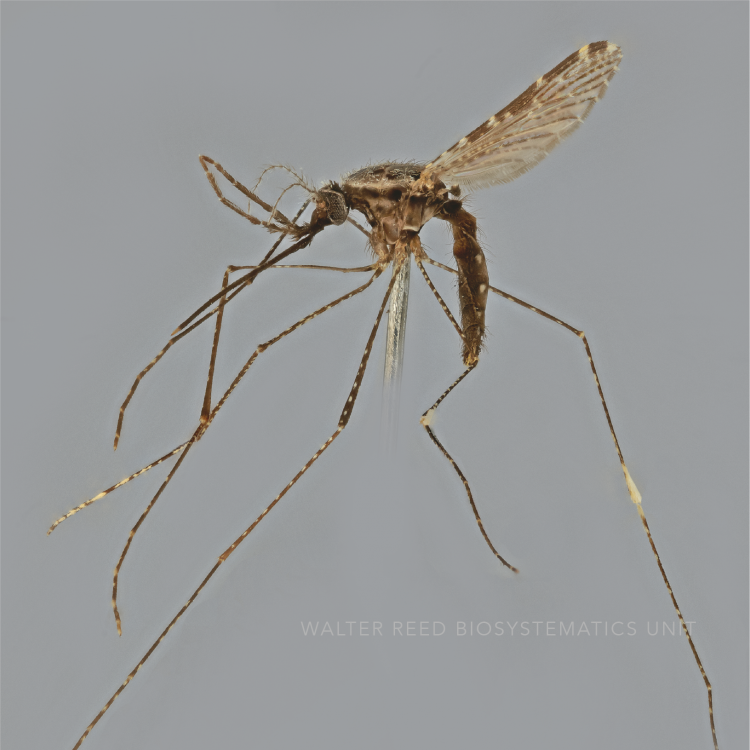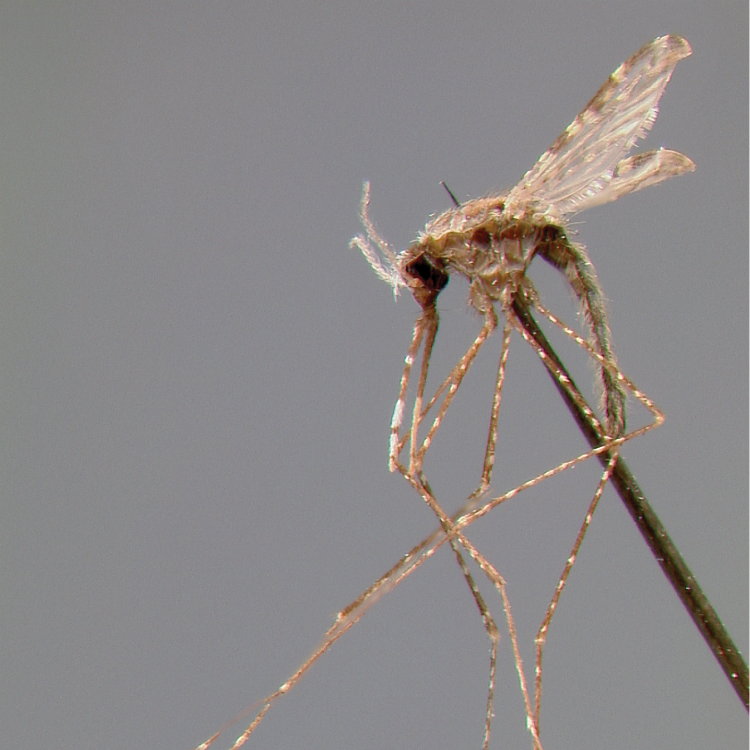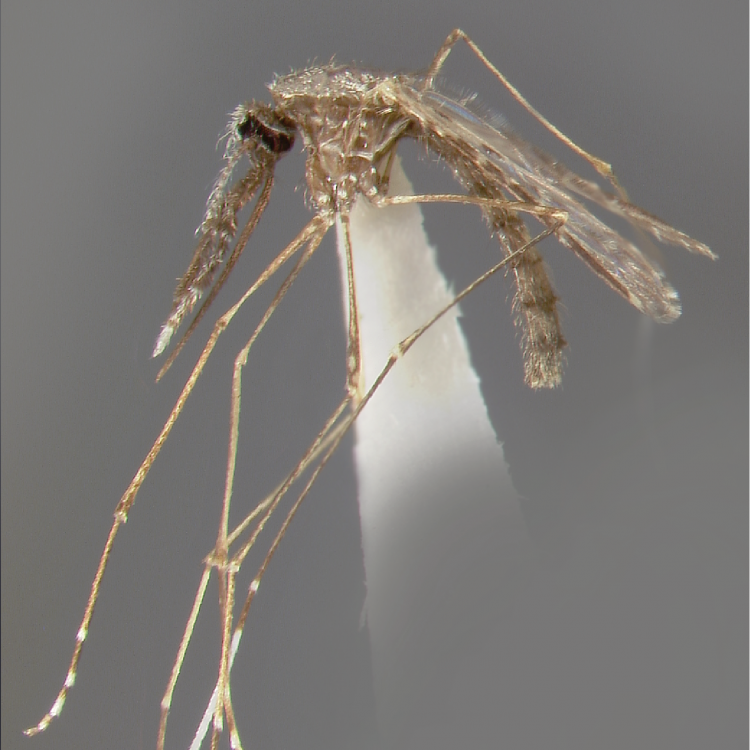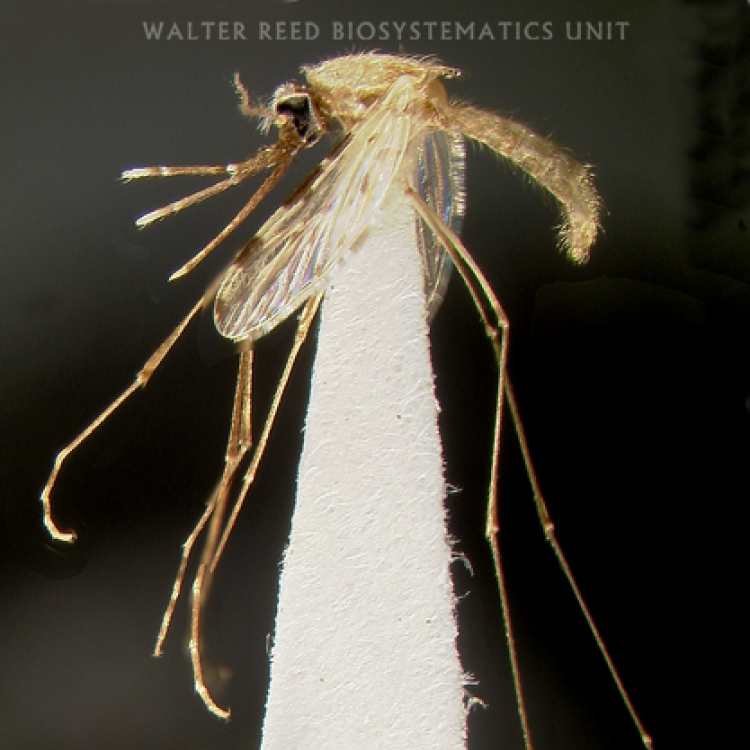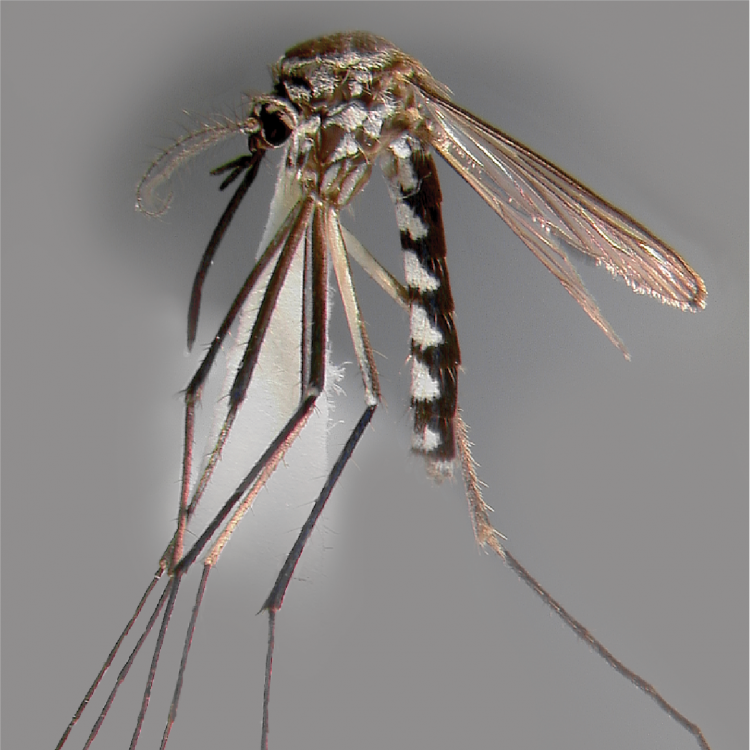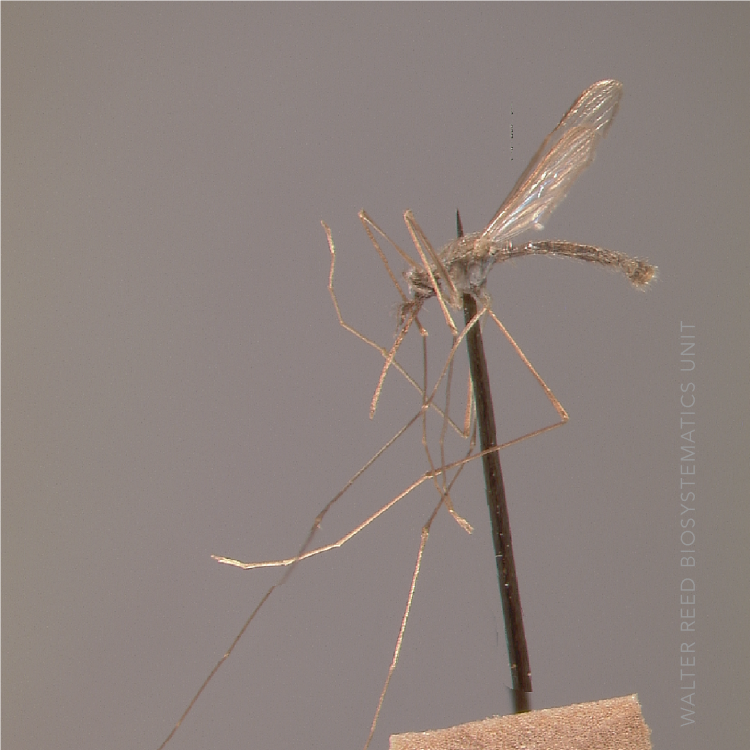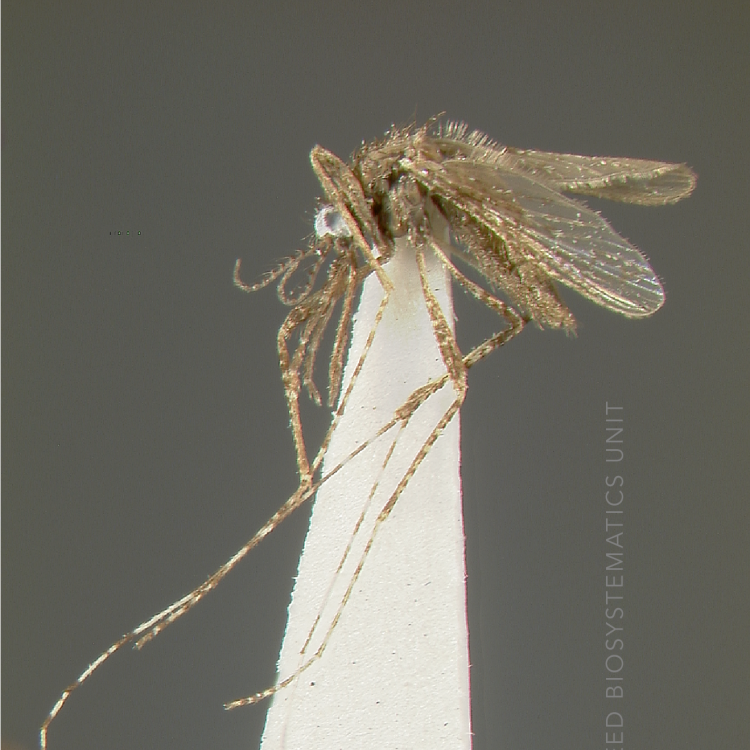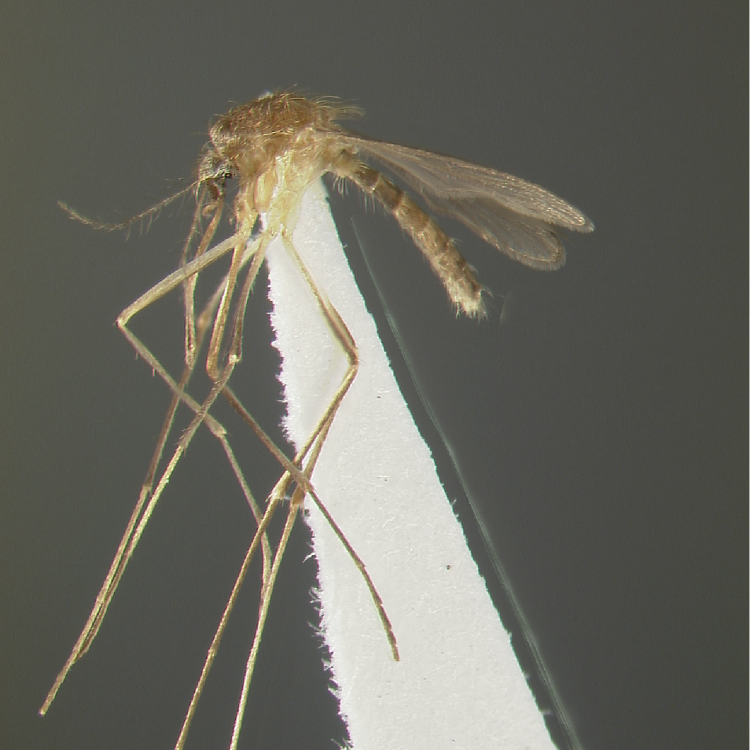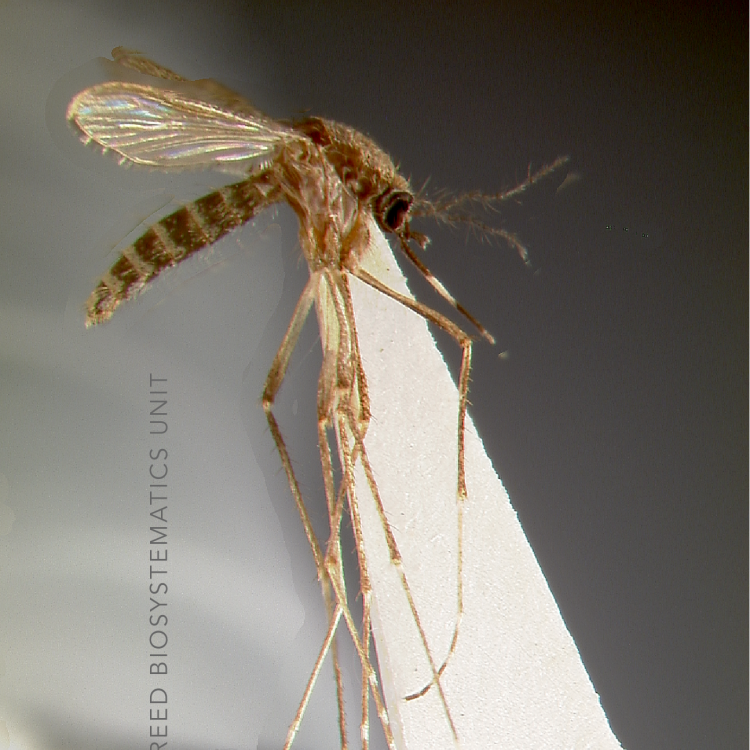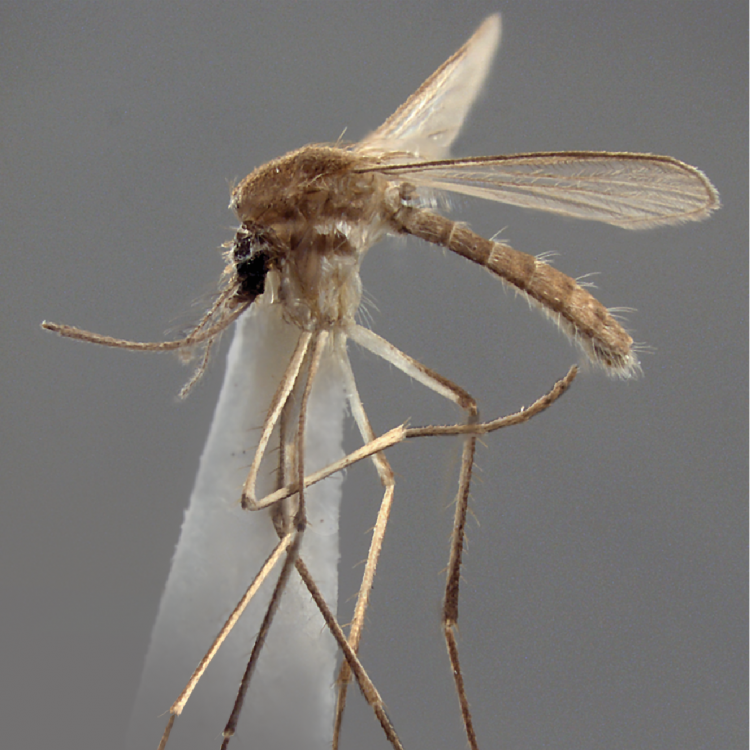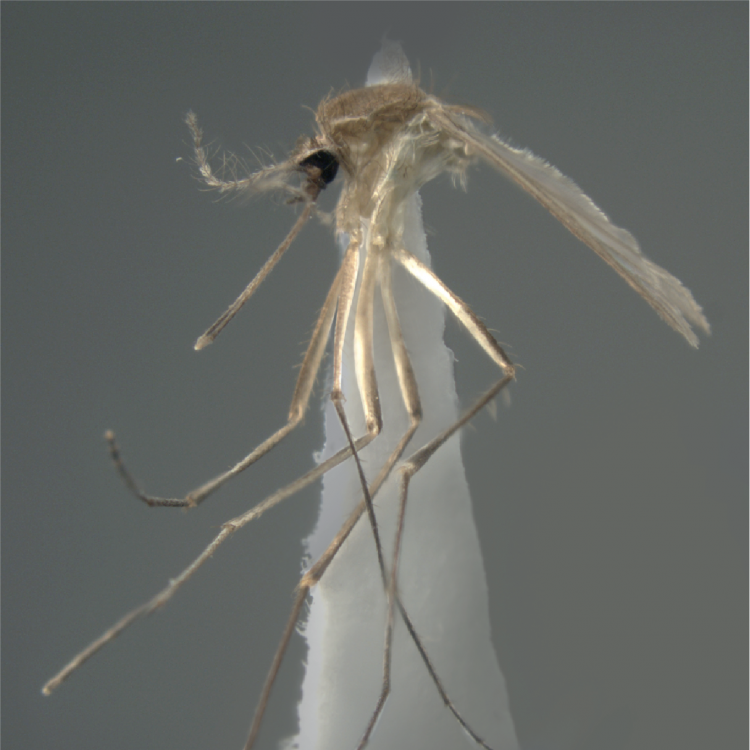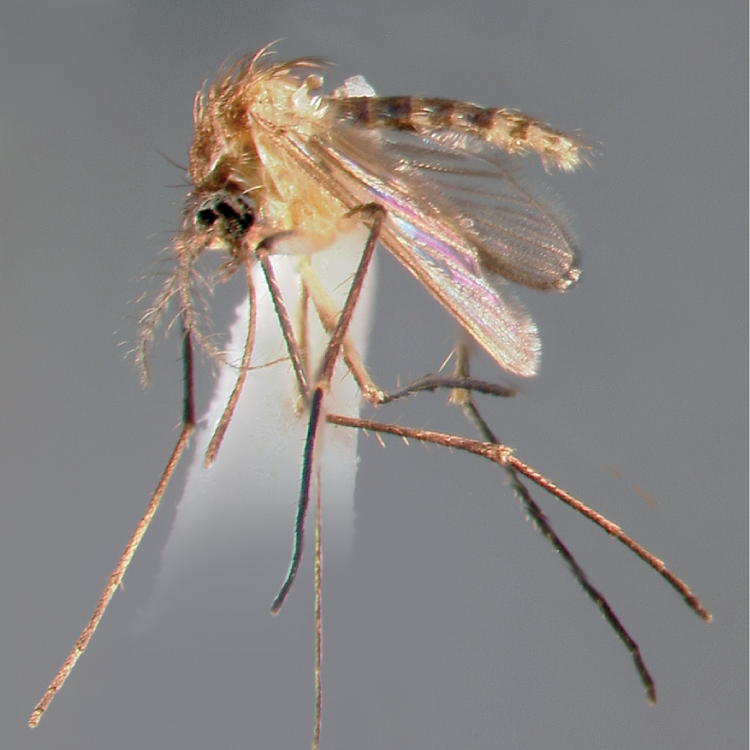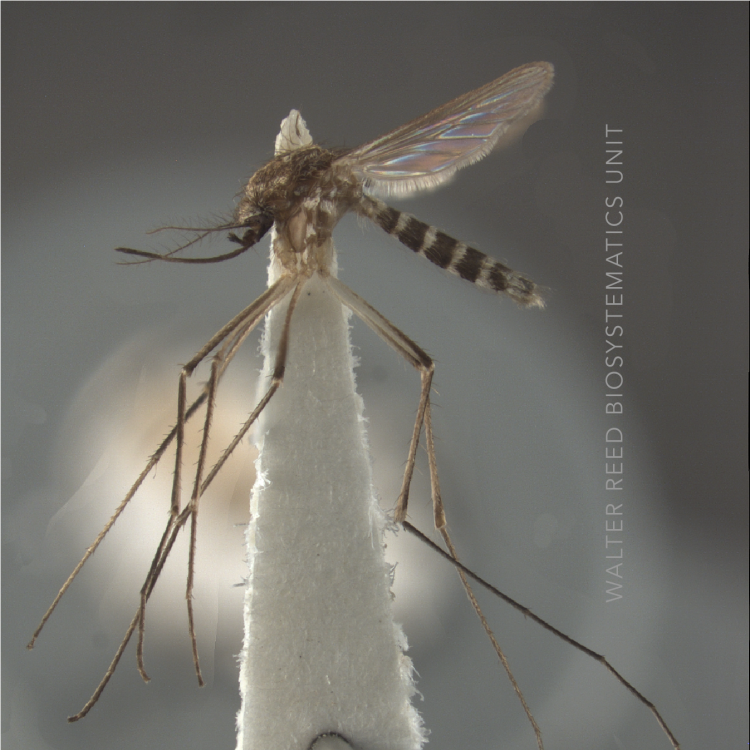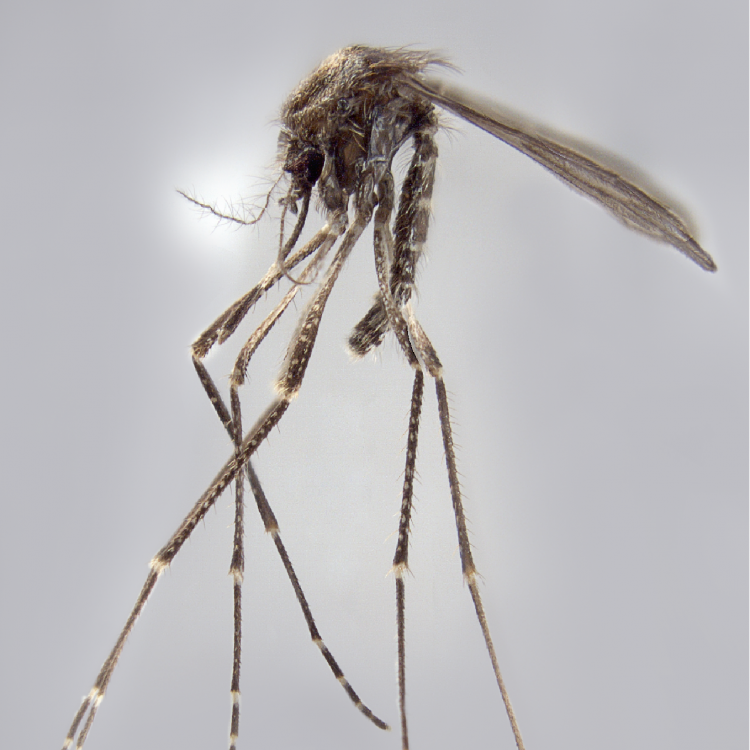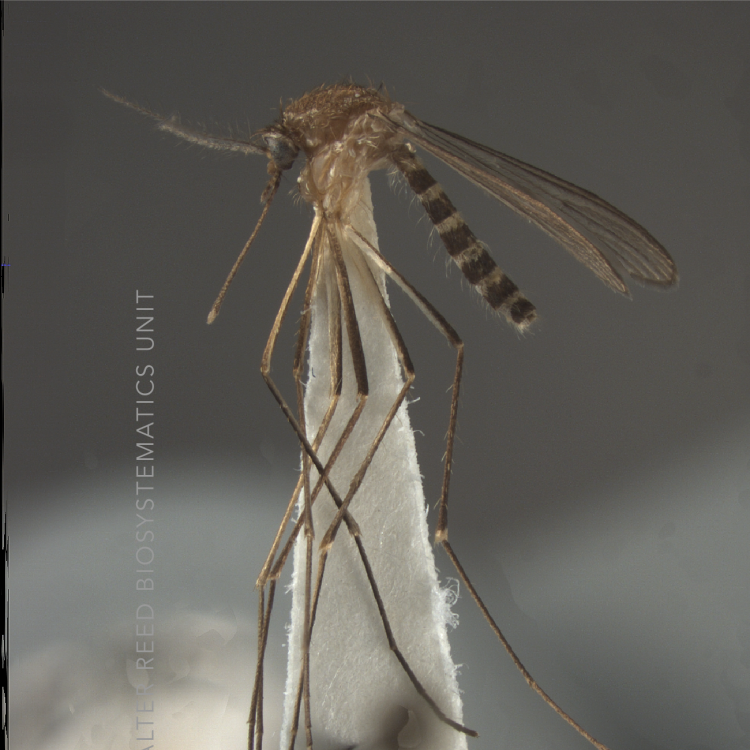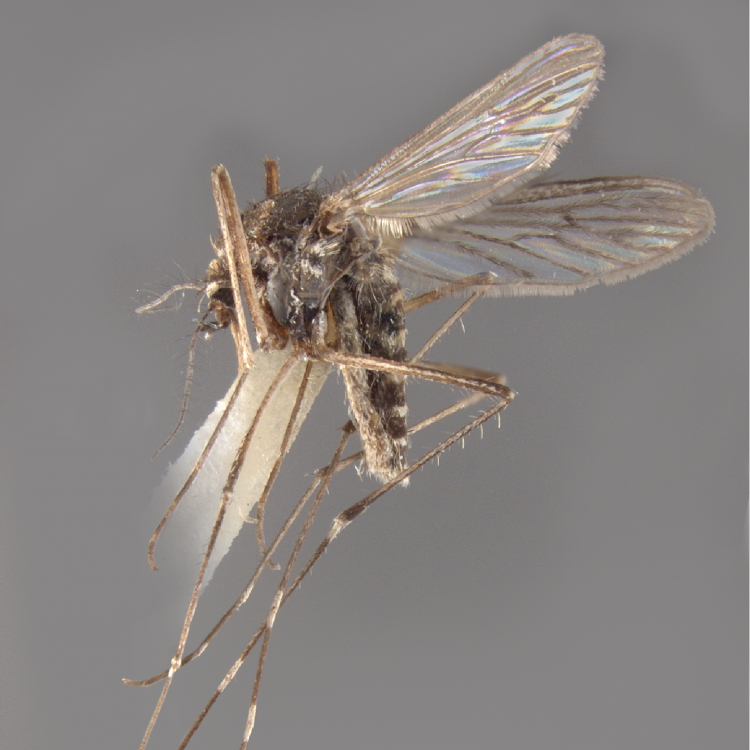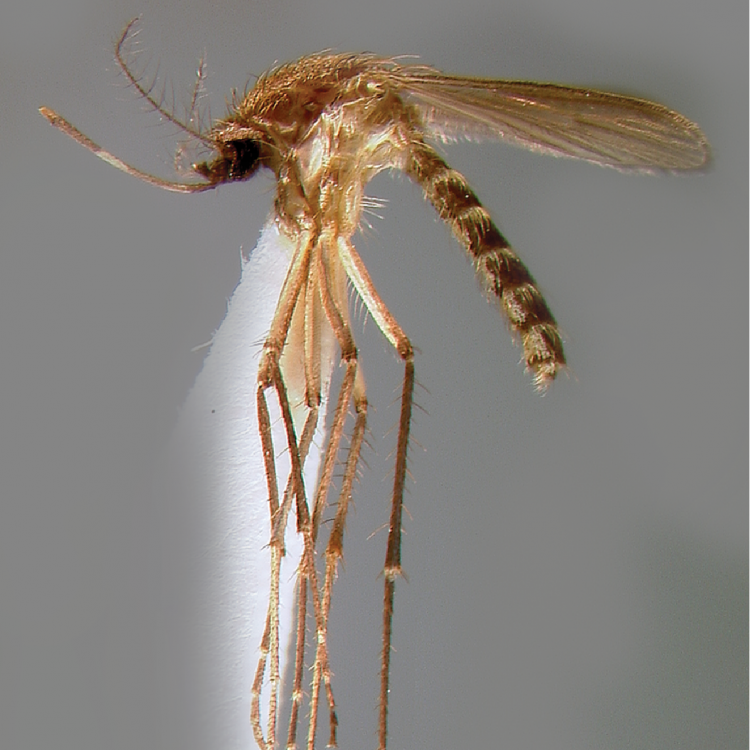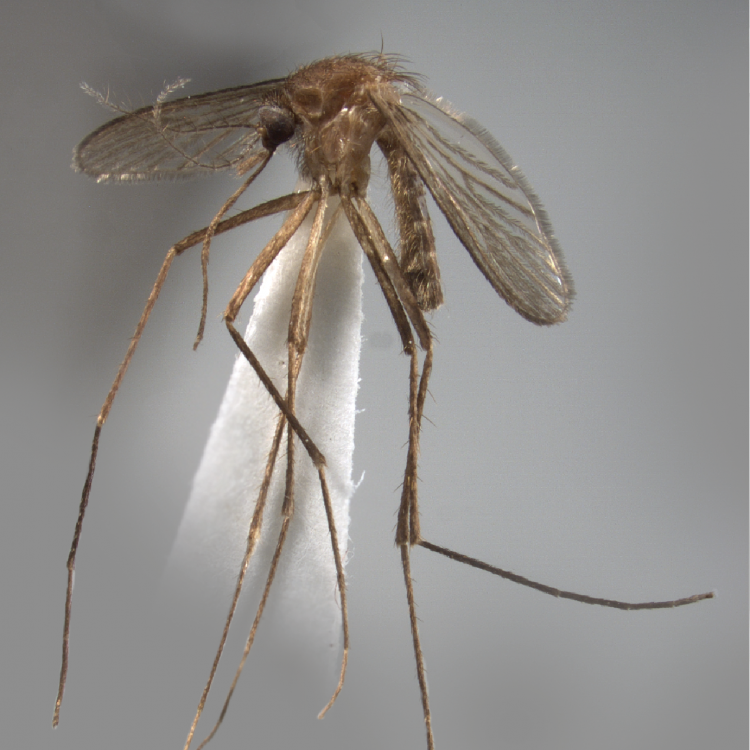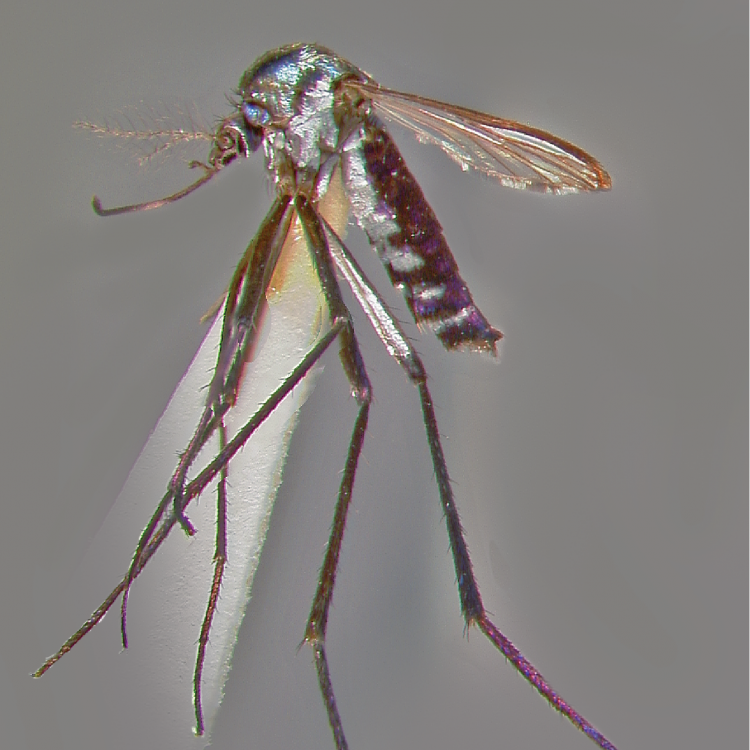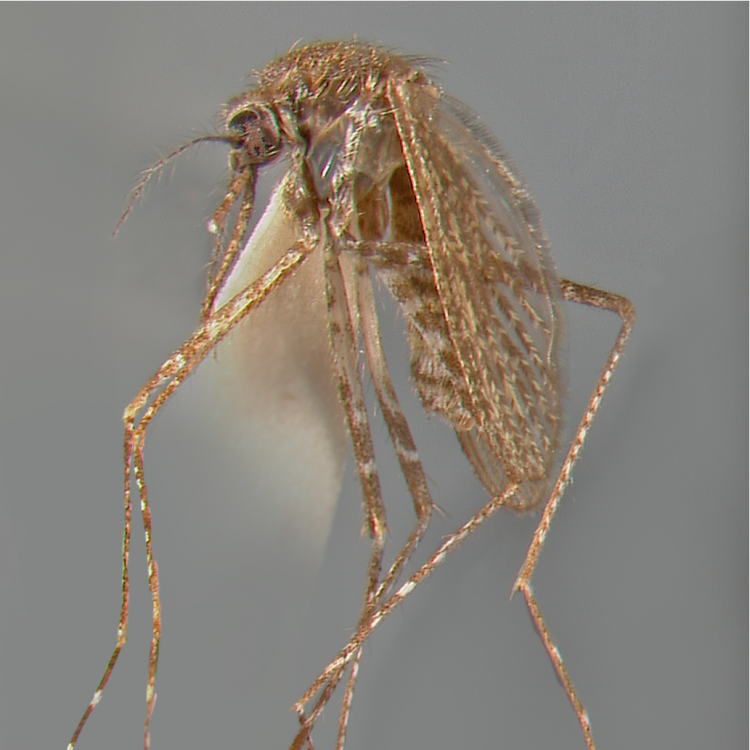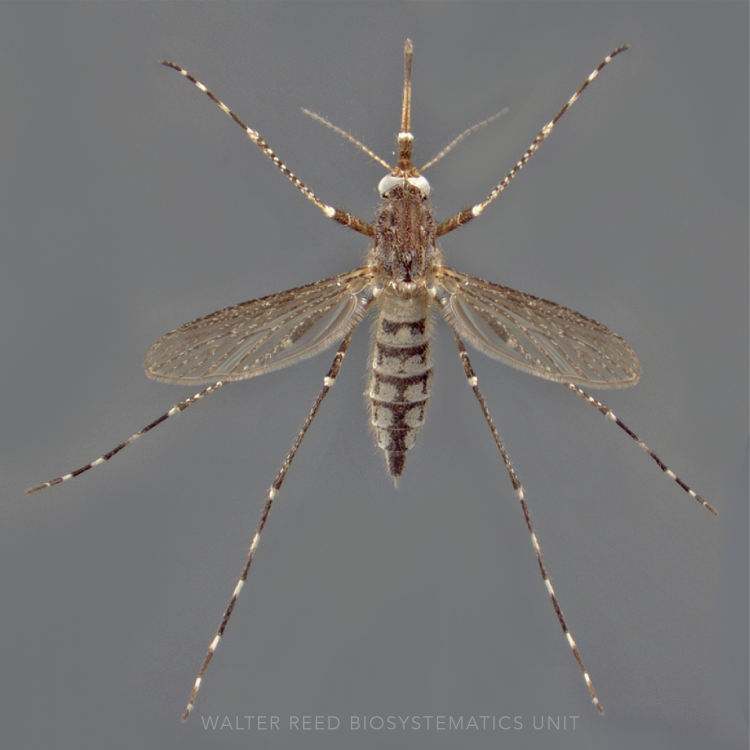ORIENTAL REGION
Etymology: Not stated; [causing death, deadly (Latin)].
Anopheles letifer is the nominal species of the Letifer Subgroup which also includes An. collessi Mattingly, An. roperi Reid, and An. whartoni Reid. Many early records of An. letifer are recorded under the name An. umbrosus (Theobald).
Type locality: Kg. Sijangkang, Selangor, Malaya [Malaysia]
Type depository: Natural History Museum, London, England, United Kingdom (NHMUK)
DIAGNOSTIC CHARACTERS (Click photos to view; mouse over and click large photo to zoom in.)
ADULT (illustrated): Head: Palpus (MPlp) unicolorous; clypeus without lateral patches of dark scales; flagellomere Flm1 only with pale scales. Thorax: Antepronotal scales present; upper proepisternal setae usually absent. Legs: Fe-III without tuft of dark scales or distal broad preapical white band; Ti-III dark-scaled or with small pale spot basally; Ta-III5 dark-scaled; Wing: Costa without presector pale spot; base of veins R and CuA with dark scales; wing apex with 2 pale spots, without pale spot at vein R2; vein 1A pale-scaled proximal to median dark spot, infrequently with 2 or 3 dark scales near base. Abdomen: VII-S without tuft of black scales.
LARVA (not illustrated): Head: Seta 1-A with very long branches (usually ≤20), reaching well beyond midpoint on antenna; seta 2-C single or with ≤4 branches near tip; seta 4-A with 1-2 stout, slightly hooked branches. Abdominal segments: Seta 0-III usually with <5 branches, at least on one side; seta 1 usually not palmate, at most on 2 or 3 segments; seta 6-IV with <7 branches.
TAXONOMIC KEYS
Nguyen Thuong Hien 1968
Rattanarithikul et al. 2006b
![]()
WRBU – Anopheles - Myzorhynchus Series - Indomalayan Region - Adult
![]()
WRBU – Anopheles - Myzorhynchus Series - Indomalayan Region - Larva
![]()
WRBU – Anopheles - Myzorhynchus Series - Oriental Region - Adult
![]()
WRBU – Anopheles - Myzorhynchus Series - Oriental Region - Larva
![]()
WRBU - Genera - Global - Adult
![]()
WRBU - Genera - Global - Larva
![]()
WRBU - Genera - Indomalaya - Adult
![]()
WRBU - Genera - Indomalaya - Larva
![]()
WRBU - Genera - Oriental - Adult
![]()
WRBU - Genera - Oriental - Larva
![]()
WRBU - Anopheles Subgenera and Series - Indomalaya - Adult
![]()
WRBU - Anopheles Subgenera and Series - Indomalaya - Larva
![]()
WRBU - Anopheles Subgenera and Series - Oriental - Adult
![]()
WRBU - Anopheles Subgenera and Series - Oriental - Larva
Exemplar DNA sequences
An. letifer COI: KF564694–95.
BIONOMICS
Immatures
Immature An. letifer are found in the dark-brown, peaty (acidic; pH 5.8 or less) ground waters in plantations of coconut, pineapple, rubber and coffee, and are commonly associated with the broken forest habitats caused by palm oil plantations. Immature An. letifer are occasionally detected in brackish water coastal pools, but only when no freshwater habitats are available.
Adults
Anopheles letifer is highly anthropophilic, primarily exophilic, and the primary vector of human malaria in flat, peat forests in coastal regions. It bites throughout the night, and readily enter houses in forest environments to bite. Other hosts include monkeys, cattle and chickens. During the day, adults rest outdoors and can be induced to during the day In heavily shaded sites.
DISTRIBUTION NOTES
Cambodia, Indonesia, Malaysia (including Borneo (Sarawak)), Singapore, Thailand, Vietnam.
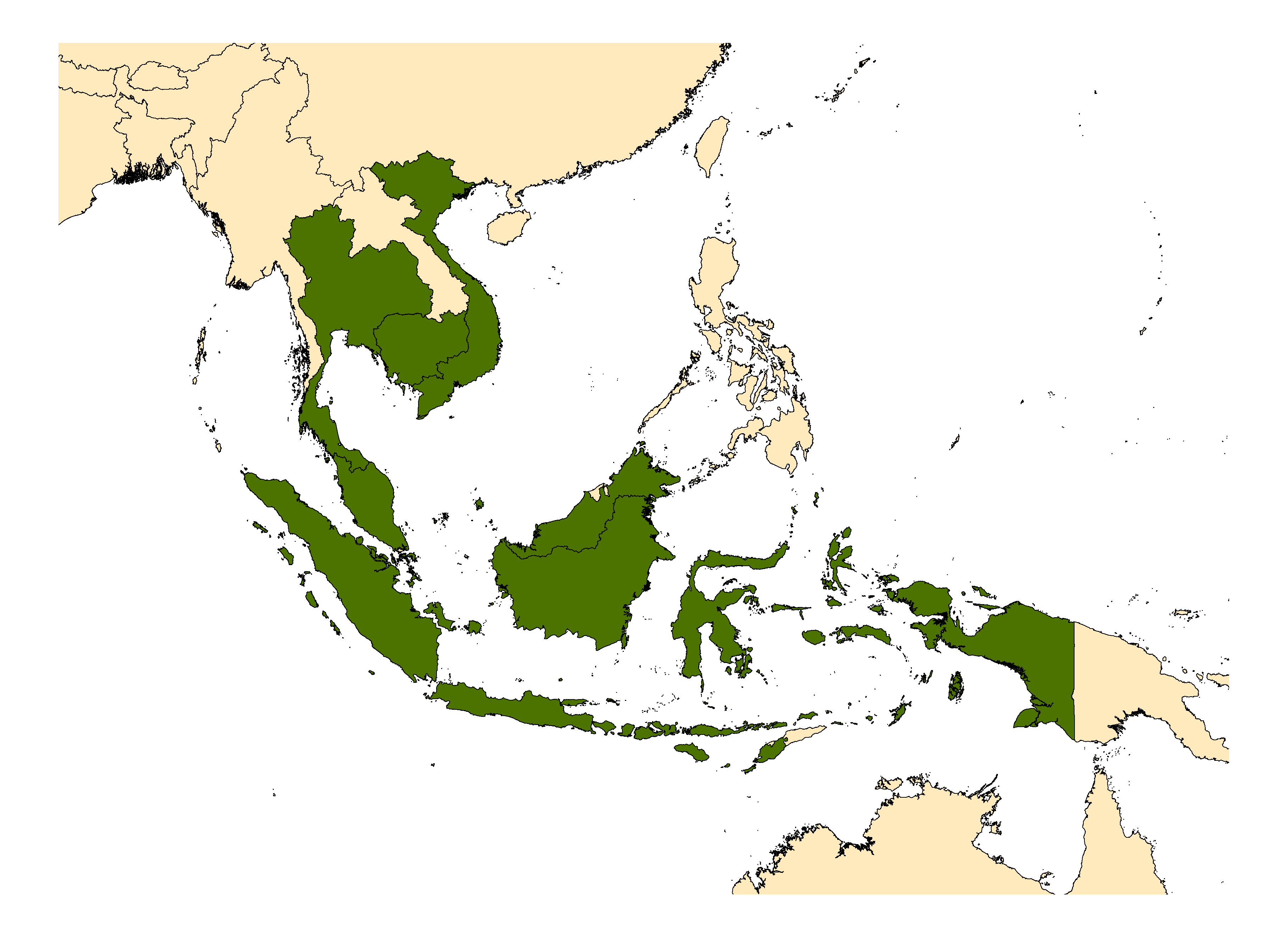
WRBU VECTOR HAZARD REPORTS
None; View other WRBU Vector Hazard Reports
Available GIS Models:
None
IMPORTANT REFERENCES (full citations below)
Sandosham 1944: 129 (F*, L*)
Reid 1950: 294 (M*, F*, P*, L*; neotype designation, taxonomy)
Bonne-Wepster & Swellengrebel 1953: 180 (M, F*, L*)
Nguyen Thuong Hien 1968 (F*, L*; keys, taxonomy, bionomics, Vietnam)
Reid 1968: 173 (M*, F*, P*, L*, E*)
Harrison & Klein 1975 (distribution)
Harrison & Scanlon 1975: 118 (M*, F*, P*, L*; distribution)
Lee et al. 1987b: 65 (F key, taxonomy, bionomics, distribution, review)
Rahman et al. 1997 (review, bionomics, Malaysia)
Rattanarithikul et al. 2006b (F*, L*; bionmics, distribution, keys)
Manguin 2013 (taxonomy, bionomcs, medical importance, control)
CURRENT SYNONYMS
None
CURRENT SUBSPECIES
None
CITED REFERENCES
Bonne-Wepster, J., & Swellengrebel, N.H. (1953). The anopheline mosquitoes of the Indo-Australian Region. Amsterdam: J. H. de Bussy.
Harrison, B.A., & Scanlon, J.E. (1975). Medical entomology studies-II. The subgenus Anopheles in Thailand (Diptera: Culicidae). Contributions of the American Entomological Institute, 12(1), iv + 1–307.
Lee, D.J., Hicks, M.M., Griffiths, M., Debenham, M.L., Bryan, J.H., Russell, R.C., . . . Marks, E.N. (1987b). The Culicidae of the Australasian region. Volume 5. Commonwealth Department of Health, School of Public Health and Tropical Medicine Monograph Series, 2.
Manguin, S. (Ed.) (2013). Anopheles mosquitoes - New insights into malaria vectors. Janeza Trdine 9, 51000 Rijeka, Croatia: InTech.
Nguyen Thuong Hien 1968. The genus of Anopheles in Vietnam. Saigon: Bureau of Entomology, National Malaria Program/ Republic of Vietnam. English translation by Military Entomology Information Service. 205pp.
Rahman, W.A., Che’Rus, A. and Ahmad, A.H. (1997) Review: Malaria and Anopheles mosquitoes in Malaysia. Southeast Asian Journal of Tropical Medicine and Public Health, 28(3), 599–605.
Rattanarithikul, R., Harrison, B.A., Harbach, R.E., Panthusiri, P., & Coleman, R.E. (2006b). Illustrated keys to the mosquitoes of Thailand. IV. Anopheles. Southeast Asian Journal of Tropical Medicine and Public Health, 128(Supplement 2), 2.
Reid, J.A. (1950). The Anopheles umbrosus group (Diptera: Culicidae). I: Systematics, with descriptions of two new species. Proceedings of the Royal Entomological Society (B), 101(9), 281–318.
Reid, J.A. (1968). Anopheline mosquitoes of Malaya and Borneo. Studies from the Institute for Medical Research Malaysia, 31, 1–520.
Sandosham, A. A. (1944). Malaria in Malai. A handbook for anti-malaria students. pp129–132. Syonan Tokubetu-si (Singapore). 288pp.
CITE THIS PAGE
Walter Reed Biosystematics Unit (Year). Anopheles letifer species page. Walter Reed Biosystematics Unit Website, http://wrbu.si.edu/vectorspecies/mosquitoes/letifer, accessed on [date (e.g. 03 February 2020) when you last viewed the site].

